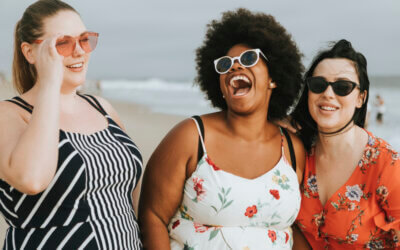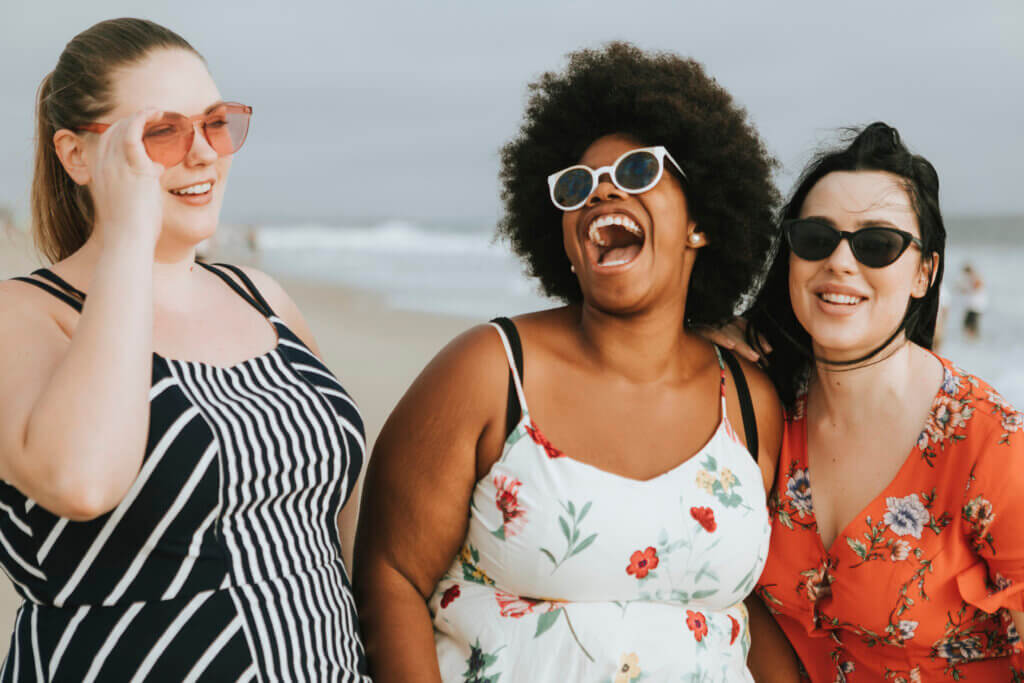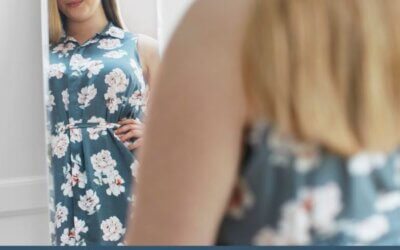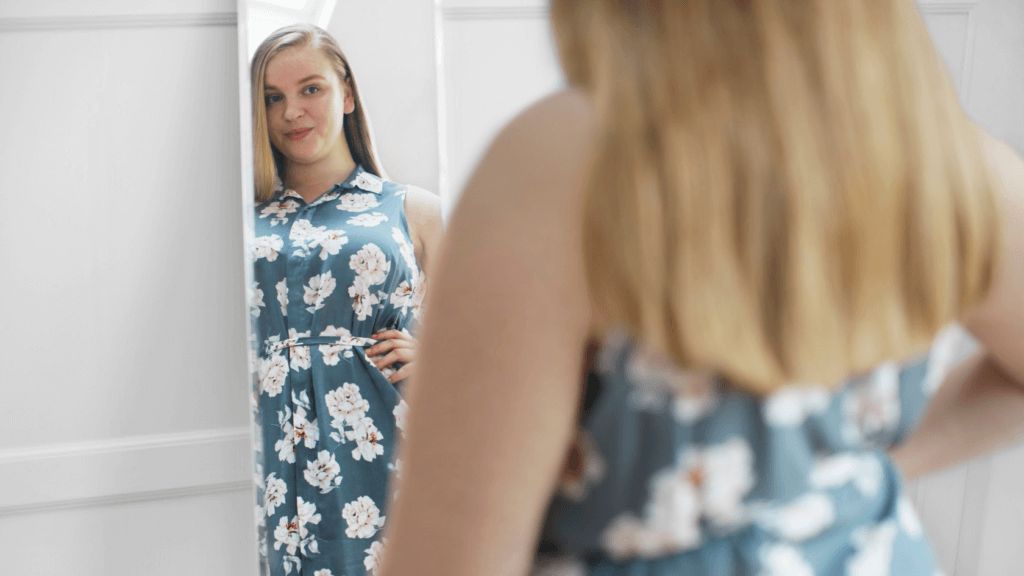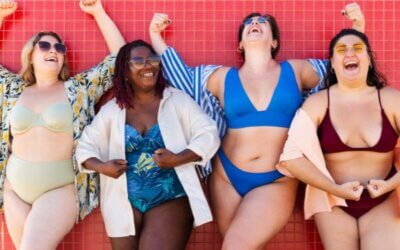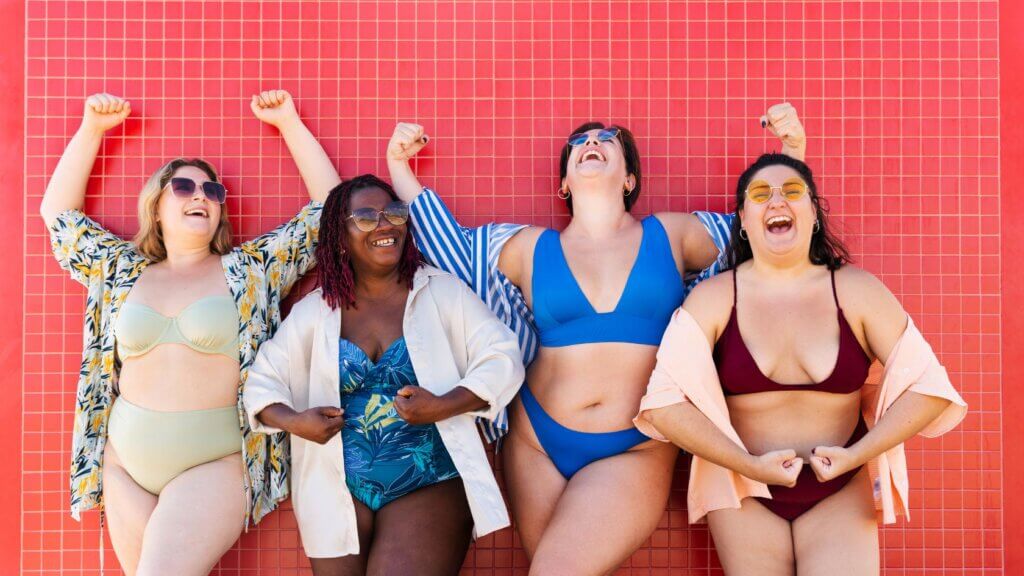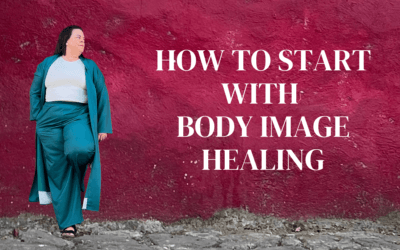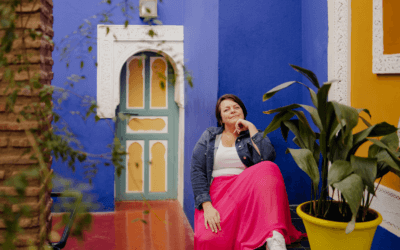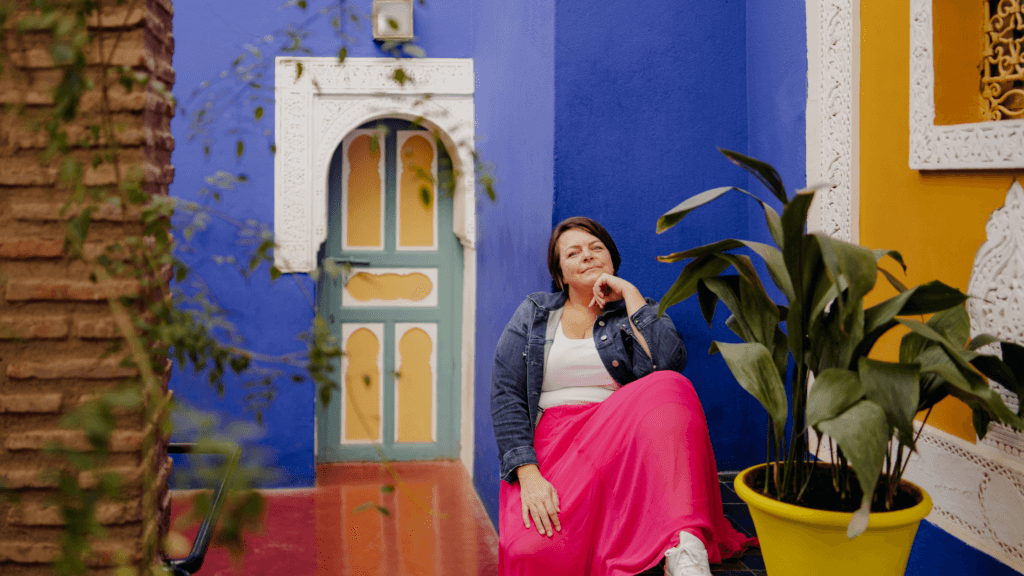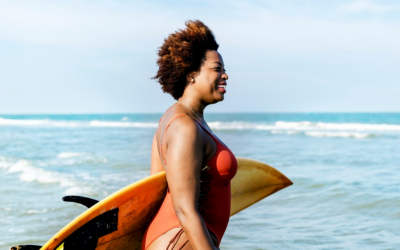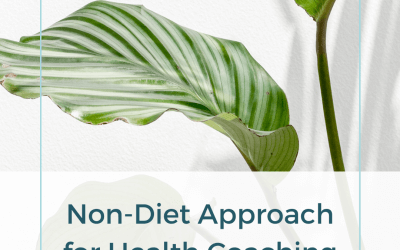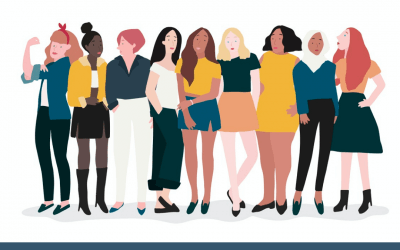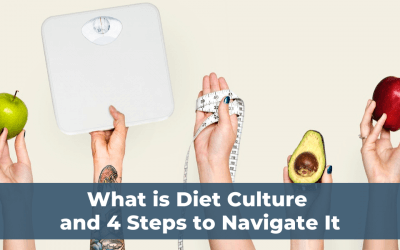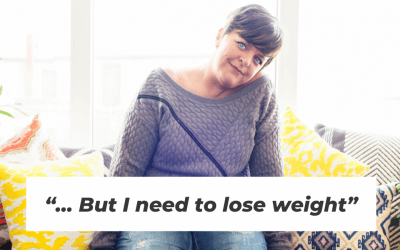Body Image Blogs
How to Love Yourself in Your Now Body
How to Love Yourself in Your Now Body
Have you ever felt like you’re waiting to reach some imaginary finish line before you can finally start loving yourself? For 25 years, I lived in that perpetual waiting room, believing that self-love was something I needed to earn. Today, I want to share my journey of learning how to love yourself exactly as you are, in your now body – no conditions attached.
Why Loving Yourself Feels So Hard Right Now
Let’s be honest – if you’ve spent years thinking your body isn’t “enough,” the idea of loving yourself probably feels like a stretch. I get it because I’ve been there. Through years of socialization, we’ve unknowingly become experts at criticizing ourselves, building an impressive skillset of finding reasons why we’re not worthy of self-love… yet.
Sound familiar?
– “I’ll love myself when I take better care of my body”
– “Once I fix this one thing, then I’ll be worthy”
– “If I could just change X, Y, or Z, self-love would come naturally”
Here’s the truth I wish someone had told me sooner: If you keep believing you have to change before you can love yourself, you’ll be stuck in that cycle forever. I know because I spent over 25 years trapped in that exact pattern.
My Personal Journey to Self-Love
Looking back, I can pinpoint exactly how this cycle manifested in my life. Every Monday, I’d start a new diet, convinced that this time would be different. I’d meticulously track every calorie, schedule every workout, and promise myself that once I reached my “goal weight,” I’d finally feel worthy of love.
But here’s what actually happened: Even when I did reach those arbitrary goals, the self-love I desperately sought remained elusive. I’d find new flaws to fix, new measurements to obsess over, and new reasons why I wasn’t “quite there yet.”
The turning point came during a particularly exhausting cycle of restriction and self-criticism. I realized I’d spent more time hating my body than I had loving any other aspect of my life. That thought stopped me cold. How many precious moments had I missed because I was too busy planning my next transformation?
The Mindset Shift That Changed Everything
In my forties, exhaustion finally caught up with me. I was tired of trying to earn my way to self-love through “perfect” behavior. That’s when a coach asked me something that changed everything: “What if you took the risk to love yourself right now? Unconditional to your behaviors?”
This question stopped me in my tracks. I realized I had been trying to hustle my way to self-love, believing that:
– More “right” behaviors would earn me self-love
– Less “wrong” behaviors would make me worthy
– Self-love was something to achieve rather than choose
How to Start Loving Yourself in Your Now Body Today
The journey to self-love isn’t about changing your body – it’s about changing your mind. Here’s how to begin:
1. Make the Decision
Love, like any other feeling, is created by the thoughts we think, not the actions we take. You must actively decide to love yourself. This means consciously choosing to think thoughts that create feelings of love, even (and especially) when it feels uncomfortable.
2. Authorize Yourself
Stop waiting for permission. You need to self-authorize to think loving thoughts about yourself because that authorization won’t come from anyone else. You have the power to grant yourself this permission right now.
3. Embrace Discomfort
Learning to love yourself will feel uncomfortable at first. My inability to sit with this discomfort kept me in diet culture for decades. Being comfortable with discomfort is a crucial part of the journey.
What the Transformation Really Looks Like
The path to self-love isn’t linear – it’s more like a spiral staircase. Here’s what you can expect along the way:
The Early Days
In the beginning, you’ll catch yourself falling into old patterns of self-criticism. That’s normal. The difference is that now you’ll recognize these thoughts for what they are: learned behaviors, not truths. Each time you notice these thoughts, you have a new opportunity to choose differently.
The Middle Ground
As you practice self-love, you’ll start having more good days than bad. You might still struggle, but you’ll recover faster. I remember the first time I looked in the mirror and my first thought wasn’t about what needed to be “fixed” – it was a moment of genuine appreciation for my body’s strength and resilience.
The New Normal
Eventually, self-love becomes your default setting. For me, this means:
– Starting each day with acceptance rather than criticism
– Treating myself with the same compassion I offer others
– Seeing setbacks as opportunities for growth rather than proof of unworthiness
– Choosing clothes that feel good now, not waiting for some future version of myself
What Self-Love Looks Like Now
Today, loving myself is my default state of being. It’s not something I earn – it’s something I choose, regardless of what I do or don’t do. When I notice myself steering away from self-love, I see it as a signal to pause and reevaluate my thoughts, not my body.
Remember: You must love yourself to the future you want. Waiting until you’ve changed to start loving yourself is like waiting until you’ve reached your destination to put gas in your car – it just doesn’t work.
The path to loving yourself in your now body starts with a single decision – the decision to stop waiting and start loving yourself today. Are you ready to make that choice?
Ready to Transform Your Relationship with Self-Love?
You can access all of our services on our work with us page. We have a number of programs and service levels enabling us to serve most women:
Free Resources and Masterclasses: Get started and get to know us better!
Private coaching with Stephanie and her team Stephanie and her team of Certified Non-Diet Coaches are waiting to support you in a one-to-one setting with an individualized plan.
Non-Diet Coaching Certification for professionals ready to integrate the Going Beyond The Food Method™️ in their practice and for women wanting to become Certified Coach and build a business coaching other women beyond the food.
The #1 Body Image Coaching Question
As a body image coach, I’ve discovered a powerful question that can completely transform how women perceive and relate to their bodies. This simple yet profound inquiry has the potential to kickstart a journey of self-discovery and healing. So, what is this game-changing body image coaching question? Let’s dive in and explore its impact.
The #1 Body Image Coaching Question: “Why Do You Have a Body?“
This question often leaves my clients speechless. It’s not something most women have ever considered before, and that’s precisely why it’s so powerful. When I pose this question in my body image course, I allow the silence to linger, giving my clients the space to reflect deeply.
The Power of Reflection
The most common response I hear from my body image clients is, “I’ve never thought about that before.” And that’s exactly the point. This body image coaching question opens up a world of possibilities and new perspectives. It challenges the deeply ingrained beliefs we’ve absorbed from society about our bodies’ purpose and value.
Unpacking Socialization and Belief Systems
By pondering why we have a body, we begin to unravel the complex web of socialization and belief systems that have shaped our body image. This question allows my coaching clients to:
1. Examine our unconscious beliefs about our bodies
2. Identify the sources of these beliefs (media, family, culture)
3. Recognize how these beliefs impact our feelings and behaviors
Changing Thoughts to Change Feelings
Understanding the connection between our thoughts and feelings about our bodies is crucial. When we realize that our body image is largely a product of our thinking, we gain the power to change it. By shifting our perspective on why we have a body, we can transform how we feel about it.
The Myth of Needing to Love Your Body
One of the most liberating realizations that comes from this body image coaching question is that women don’t need to love their bodies. This might sound counterintuitive, especially given the popular “body positivity” movement, but hear me out.
Breaking Free from Unrealistic Expectations
The pressure to love every aspect of our bodies can be overwhelming and, frankly, unrealistic. It’s okay not to love everything about your body all the time. What’s more important is developing a neutral, respectful relationship with your body.
The True Purpose of Your Body
So, if our bodies aren’t here to be loved or admired, what is their purpose? The answer is beautifully simple:
Your Body is a Vehicle for Experiencing Life
Your body allows you to:
- Move through the world
- Eat and drink
- Feel emotions
- Think and create
- Connect with others
- Explore and adventure
In essence, your body is the incredible vessel through which you experience all that life has to offer.
The Ethics of Body Image Coaching
As a body image coach, I believe it’s crucial to approach this work ethically and responsibly. Here’s why I advocate for a different approach:
Moving Beyond Body Love to Body Neutrality
Rather than pushing women to love their bodies, which can feel forced and inauthentic, my approach is body neutrality. This approach:
- Recognizes that it’s normal to have fluctuating feelings about your body
- Separates self-worth from appearance
- Focuses on accepting and respecting your body as it is
Challenging Patriarchy and Diet Culture
Body neutrality is a powerful tool for liberating women from the oppressive expectations of patriarchy and diet culture. It helps us recognize and challenge the belief that our bodies’ primary purpose is to be pleasing to others or a measure of our worth.
Reinventing Body Image Coaching
It’s time for a revolution in how we approach body image coaching. Here’s what I propose:
1. Embodiment over Intellectualization: We need to move beyond just talking about body image and start living it.
2. Leading by Example: As coaches, we must embody body neutrality in our own lives.
3. Inclusivity: Recognize that feeling “good enough” is possible for all body sizes, ages, and abilities.
Embracing a New Perspective
The #1 body image coaching question – “Why do you have a body?” – has the power to shift your entire perspective on body image. By recognizing that your body’s purpose is to experience life, not to be loved or admired, you can free yourself from the constraints of societal expectations and diet culture.
Remember, you don’t need to love your body to respect it and treat it well. Body neutrality offers a path to peace with your body, allowing you to focus on all the amazing things it enables you to do and experience.
Are you ready to explore this transformative question and begin your journey towards body neutrality? Your body – and your life – are waiting for you to embrace this new perspective.
Let me teach how to coach body image
You can access all of our services on our work with us page. We have a number of programs and service levels enabling us to serve most women:
The Body Image Coaching Accelerator: A body image coaching mentorship delivered live a few times a year. Find out when the next live event is happening.
Free Resources and Masterclasses: We have a few short classes on how to coach body image and desire to lose weight available to you.
Private coaching with Stephanie and her team Stephanie and her team of Certified Non-Diet Coaches are waiting to support you in a one-to-one setting with an individualized plan.
Non-Diet Coaching Certification for professionals ready to integrate the Going Beyond The Food Method™️ in their practice and for women wanting to become Certified Coach and build a business coaching other women beyond the food.
Body Image Healing Is Key to Improving Health-Promoting Behaviors
Body Image Healing Is Key to Improving Health Promoting Behaviors
As a woman on a journey to better health, you’ve likely encountered countless diet plans and weight loss strategies. But what if I told you that the key to truly improving your health-promoting behaviors lies not in restrictive diets, but in healing your relationship with your body? Let’s explore why body image healing is crucial for your overall well-being and how it can transform your approach to health.
The Startling Truth About Body Image
Before we dive deeper, let’s look at some eye-opening statistics:
– Only 4% of women describe themselves as beautiful
– 96% of women have negative thoughts about their bodies
– 90% of health coaching or nutrition clients initially seek help to lose weight
These numbers paint a clear picture: the vast majority of women struggle with body image issues. But what impact does this have on our health?
How Body Image Affects Health Behaviors
The Weight-Centric Approach vs. Body Image Healing
Traditionally, the health and fitness industry has taken a weight-centric approach aka diet culture, focusing primarily on weight loss as the key to better health. This approach often validates the belief that our bodies need to change to be acceptable. However, this mindset can be counterproductive to our overall well-being.
Body image healing, on the other hand, shifts the focus from changing our bodies to accepting and caring for them as they are. This weight-neutral paradigm shift can have a profound impact on our health behaviors.
The Research Behind Body Image and Health
A 2013 study revealed a fascinating insight: there’s no direct link between body weight and self-esteem. However, the study did find a strong connection between how people feel about themselves and the healthy activities they engage in.
What does this mean for you? Simply put, the better you feel about your body, the more likely you are to engage in health-promoting behaviors like eating nutritious foods and staying active. It’s a positive cycle that starts with body image healing.
Why We Can’t Hate Ourselves to Health
You’ve probably heard the saying, “You can’t hate yourself into a version of yourself you love.” This applies to health as well. Recent research has shown that body dissatisfaction thoughts are linked to inflammation in the body. This underscores the physical impact of negative body image on our health.
When we’re constantly at war with our bodies, we’re less likely to engage in behaviors that truly nourish and care for them. Body image healing is about making peace with your body, which in turn motivates you to treat it with kindness and respect.
The Non-Diet Approach to Health
So, if dieting and weight focus aren’t the answer, what is? Enter the non-diet approach. This weight-neutral strategy focuses on health behaviors rather than weight loss. The goal is to help you take charge of factors within your control, such as your thoughts and behaviors, which ultimately lead to improved well-being regardless of weight.
Key Principles of the Non-Diet Approach:
1. Focus on health-promoting behaviors, not weight
2. Cultivate a positive relationship with food
3. Practice intuitive eating
4. Engage in joyful movement
5. Prioritize self-care and stress management
By shifting the focus from weight to overall well-being, the non-diet approach naturally aligns with body image healing.
Steps Towards Body Image Healing
Now that we understand the importance of body image healing, let’s explore some practical steps you can take:
1. Assess Your Current Body Image
The first step in any healing journey is awareness. Take some time to reflect on your current relationship with your body. What thoughts and feelings come up when you think about your appearance? You can do this by downloading our Non-Diet Coaching Intake Forms.
Once you have established your own body image score and established if improvement is required, you have two choices: Seek guidance and expert body image coaching or self-coach your own body image.
2. Challenge Negative Self-Talk
Once you’re aware of your thought patterns, start challenging negative self-talk. When you catch yourself thinking critically about your body, pause and ask yourself if you’d say the same thing to a friend.
3. Practice Self-Compassion
Treat yourself with the same kindness and understanding you’d offer to a loved one. Self-compassion is a powerful tool in body image healing.
4. Focus on What Your Body Can Do
Instead of fixating on how your body looks, appreciate what it can do. Whether it’s carrying you through your day, allowing you to hug loved ones, or healing from illness, your body is constantly working for you.
5. Surround Yourself with Positive Influences
Curate your social media feeds, friendships, and environments to support a positive body image. Unfollow accounts that make you feel bad about yourself and seek out body-neutral influences.
The Ripple Effect of Body Image Healing
As you embark on your body image healing journey, you’ll likely notice positive changes extending beyond your relationship with your body. You may find yourself:
– Enjoying food without guilt
– Moving your body for pleasure rather than punishment
– Engaging in self-care more consistently
– Feeling more confident in various aspects of your life
Remember, body image healing is a journey, not a destination. Be patient with yourself and celebrate small victories along the way.
Conclusion: Embracing Body Image Healing for Better Health
In a world that often equates health with a certain body size or shape, it’s revolutionary to prioritize body image healing. By making peace with your body, you’re not only improving your mental well-being but also setting the stage for long-lasting, positive health behaviors.
As you move forward, remember that your worth is not determined by your appearance or your weight. You deserve to feel comfortable and confident in your body, exactly as it is right now. By embracing body image healing, you’re taking a powerful step towards true health and well-being.
Ready to start to integrating body image coaching in your health coaching?
You can access all of our services on our work with us page. We have a number of programs and service levels enabling us to serve most women:
Free Resources and Masterclasses: Get started and get to know us better!
Private coaching with Stephanie and her team Stephanie and her team of Certified Non-Diet Coaches are waiting to support you in a one-to-one setting with an individualized plan.
Non-Diet Coaching Certification for professionals ready to integrate the Going Beyond The Food Method™️ in their practice and for women wanting to become Certified Coach and build a business coaching other women beyond the food.
How to Start with Body Image Healing
Are you ready to embark on a journey of body image healing? As a body image coach, I’ve guided countless women through this transformative process. Today, I’m sharing my insights on how to start with body image healing, offering a fresh perspective that goes beyond conventional wisdom. Let’s dive in and explore a path to body neutrality that can truly liberate you from the constraints of diet culture and societal pressures.
The First Step: Asking the Right Question
When it comes to body image healing, many people think it’s all about learning to love every inch of their bodies. But I’m here to challenge that notion. The first and most crucial step in this journey is to ask yourself a powerful question:
Why do you have a body?
Take a moment to sit with this question. Let it sink in. Your initial response might surprise you, and that’s okay. This simple yet profound inquiry sets the stage for a paradigm shift in how you view your body and its purpose.
Moving Beyond Traditional Body Image Coaching
In our programs, we take a unique approach to body image coaching. Instead of focusing directly on the body itself, we use the Cognitive Behavioral Model to address the root of body image issues: beliefs and thoughts. This approach allows us to go beyond the size of your pants and dive into the core of how you perceive your body’s role in your life.
The Truth About Your Body’s Purpose
Here’s a revolutionary idea that might shake up everything you’ve been taught: Your body’s purpose isn’t to be loved or beautiful. I know, this might sound counterintuitive, especially if you’ve been immersed in the world of body positivity. But hear me out.
Women weren’t given bodies to be beautiful objects or to seek constant approval and love. The truth is far more empowering:
Humans have bodies to experience life. Yes, women too.
Your body is the incredible vehicle through which you navigate this world. It allows you to:
– Move and explore
– Feel emotions
– Think and create
– Connect with others
– Laugh, cry, and express yourself
– Nourish yourself
– And so much more
Understanding this fundamental truth is the cornerstone of body image healing. It shifts the focus from how your body looks to what your body enables you to do and experience.
The Problem with “Loving Your Body”
Now, let’s address the elephant in the room. As a coach, I believe it’s unethical and even oppressive to teach women that they must love their bodies. Here’s why:
1. It sets an unrealistic expectation
2. It still places value on appearance
3. It doesn’t address the root of body image issues
Instead of striving for constant body love, which can be exhausting and often unattainable, I propose a different approach: body neutrality.
Embracing Body Neutrality
Body neutrality is the key to liberating yourself from diet culture and patriarchal beauty standards. But what exactly is it?
Body neutrality recognizes that:
– You don’t have to love every part of your body all the time
– Your worth as a person is not tied to your appearance
– Your body is a functional tool, not an ornament
The goal of body neutrality is to accept your body for what it is – nothing more, nothing less. It’s about becoming an ally to your body, respecting it for its capabilities rather than its aesthetic qualities.
Why Body Neutrality Works
Body neutrality is powerful because it:
1. Relieves the pressure to constantly feel positive about your body
2. Focuses on function over form
3. Challenges societal conditioning about women’s bodies
4. Leads to body respect, a more sustainable and empowering mindset
By adopting body neutrality, you’re actively resisting the harmful messages that patriarchy and diet culture have ingrained in us – messages that tell women their bodies exist to be pleasing, compliant, and a measure of their worth.
Practical Steps to Start Your Body Image Healing Journey
1. Reflect on the question: “Why do I have a body?”
2. Identify beliefs you hold about your body’s purpose
3. Challenge thoughts that tie your worth to your appearance
4. Practice gratitude for what your body allows you to experience
5. Focus on how your body feels rather than how it looks
6. Surround yourself with diverse body representations
7. Engage in activities that connect you with your body’s capabilities
Remember, body image healing is a process. It takes time to unlearn years of conditioning and develop a new relationship with your body. Be patient with yourself as you navigate this journey.
The Impact of Body Image Healing
As you progress in your body image healing journey, you’ll likely notice positive changes beyond just how you feel about your appearance. Many women report:
– Increased confidence in various areas of life
– More mental energy for pursuits beyond appearance
– Improved relationships with food and exercise
– Greater overall life satisfaction
These benefits underscore why starting your body image healing journey is so crucial. It’s not just about changing how you see your body – it’s about transforming how you experience life itself.
In Conclusion
Remember, your body is not an ornament – it’s the vehicle through which you experience the richness of life. By shifting your focus from appearance to experience, you open the door to true body image healing and a more fulfilling relationship with yourself.
Starting your body image healing journey might feel challenging, but it’s a path worth taking. Embrace body neutrality, challenge harmful societal messages, and reconnect with your body’s true purpose. You have the power to rewrite your body story – and it begins with asking yourself that one crucial question: “Why do I have a body?”
Do you need help getting started with healing your body image?
You can access all of our services on our work with us page. We have a number of programs and service levels enabling us to serve most women:
Free Resources and Masterclasses: Get started and get to know us better!
Private coaching with Stephanie and her team Stephanie and her team of Certified Non-Diet Coaches are waiting to support you in a one-to-one setting with an individualized plan.
Non-Diet Coaching Certification for professionals ready to integrate the Going Beyond The Food Method™️ in their practice and for women wanting to become Certified Coach and build a business coaching other women beyond the food.
Fatphobia Coaching and Gaslighting: How I Overcome Fatphobia as a Fat Woman
Fatphobia Coaching and Gaslighting: How I Overcame Fatphobia as a Fat Woman
As a fat woman, I’ve heard it all. “Just change your thoughts about the layer of fat on your body.” “Don’t worry about what other people think of you.” These well-intentioned but misguided pieces of advice aren’t coaching – they’re gaslighting. And they’re a prime example of how fatphobia permeates our society, even in spaces meant to be supportive and empowering.
Today, I want to share my personal journey of overcoming fatphobia and how I learned to navigate a world that often seems designed to make people in larger bodies feel less than. This isn’t just my story – it’s a call to action for coaches, mentors, and anyone working with fat individuals to understand the complexities of fatphobia and how to truly support their clients.
Fatphobia Coaching and Gaslighting: Understanding Fatphobia and Gaslighting
Before we dive deeper, let’s clarify what we mean by fatphobia and gaslighting. Fatphobia is the fear, stigma, and discrimination against people with larger bodies. It’s a systemic issue that affects nearly every aspect of life for fat individuals.
Gaslighting, on the other hand, is a form of psychological manipulation where someone denies another person’s reality, making them question their own perceptions and experiences. In the context of fatphobia, gaslighting often looks like dismissing the very real challenges and discrimination fat people face daily.
When someone tells a fat person to “just love yourself more” or “ignore what others think,” they’re essentially denying the reality of living in a fatphobic society. This isn’t helpful – it’s harmful.
Coaching Fat Women Can Be Challenging
As I mentioned earlier, coaching people who are marginalized by systemic oppression can be incredibly challenging. Without the right skills and tools, even well-meaning coaches can inadvertently cause harm to their clients.
Let me illustrate this with my own experience. As a woman living in a large body, I’m acutely aware that people form opinions about me based solely on my appearance when I enter a room. For years, I internalized this and believed that I was the problem. I tried diet after diet, attempting to conform to society’s unrealistic and oppressive standards.
Eventually, I decided to say “f*ck off” to the system and accept my body. But this wasn’t an easy journey, and it certainly wasn’t as simple as just changing my mindset.
Fatphobia Coaching and Gaslighting: The Pitfalls of Simplistic Body Positivity
My first attempt at body acceptance came through an online body positivity course. The coach’s main message was, “If you love yourself enough, it will get better.” Spoiler alert: it didn’t work.
This approach, while well-intentioned, falls into the trap of gaslighting. It puts the entire burden on the individual to change their thoughts and feelings, without acknowledging the very real societal pressures and discrimination they face.
A New Approach to Overcoming Fatphobia
Realizing that simplistic body positivity wasn’t the answer, I decided to tackle the problem of fatphobia differently. Here’s how I approached it:
1. Stop Gaslighting Myself
The first step was to acknowledge the reality of fatphobia. Yes, it exists. Yes, it’s unfair. And yes, it impacts nearly every aspect of my life – from healthcare access to job opportunities to social interactions. Denying this reality wasn’t helping; accepting it was the first step towards real change.
2. Accept the Long-term Nature of the Challenge
I had to come to terms with the fact that fatphobia isn’t likely to disappear entirely in my lifetime. While things may improve, it will continue to impact me. This realization was crucial in shifting my focus from trying to change society to learning how to navigate it effectively.
3. Choose How to Respond
With this acceptance came a choice: how did I want to live the rest of my life? Did I want to pretend fatphobia doesn’t exist, hide away, and live a small life? Or did I want to learn how to experience fatphobia differently and live fully despite it?
4. Practice Self-Consent
I made a conscious choice to change my approach. This involved practicing self-consent – acknowledging that I didn’t have to do anything I didn’t want to do, including conforming to societal expectations about my body.
5. Build Safety for My Choice
Change is scary, especially when it involves going against societal norms. I acknowledged my fear and the challenges ahead, building a sense of safety and support for myself as I embarked on this journey.
6. Change My Thoughts About Fatphobia
Finally, I began the process of changing my thoughts about fatphobia. This wasn’t about denial or forced positivity. Instead, it was about acceptance and empowerment. I did the thought work from a place of acknowledging reality while also recognizing my power to shape my response to it.
Fatphobia Coaching and Gaslighting: The Power of Intersectional Coaching
This approach to overcoming fatphobia is rooted in what’s known as intersectional coaching. It’s a holistic framework that acknowledges how an individual’s various identities – including body size, race, gender, and more – impact their reality.
Intersectional coaching is the truest form of empowerment coaching because it doesn’t deny or minimize the challenges faced by marginalized individuals. Instead, it provides tools and strategies to navigate these challenges effectively.
This approach is at the heart of the Non-Diet Coaching Certification, which I now offer to other coaches. It’s why Certified Non-Diet Coaches never gaslight their clients, no matter the circumstances. We acknowledge the reality of fatphobia and other systemic issues while empowering our clients to live fully and authentically.
In Conclusion
Remember, overcoming fatphobia isn’t about denying its existence or forcing yourself to “just think positively.” It’s about acknowledging the reality of living in a fatphobic society, choosing how you want to respond, and empowering yourself to live fully despite societal prejudices.
My journey from internalized fatphobia to empowerment wasn’t easy, but it was worth it. And if I can do it, so can you. Whether you’re struggling with fatphobia yourself or you’re a coach looking to better support your clients, remember: real change starts with acknowledging reality, not denying it. From there, anything is possible.
Ready to Take the Next Steps and Dismantle Fatphobia?
If you’re inspired by my journey and want to learn more about overcoming fatphobia or providing empowering, intersectional coaching, there are several ways to get involved.You can access all of our services on our work with us page. We have a number of programs and service levels enabling us to serve most women:
Free Resources and Masterclasses: Get started and get to know us better!
Private coaching with Stephanie and her team Stephanie and her team of Certified Non-Diet Coaches are waiting to support you in a one-to-one setting with an individualized plan.
Non-Diet Coaching Certification for professionals ready to integrate the Going Beyond The Food Method™️ in their practice and for women wanting to become Certified Coach and build a business coaching other women beyond the food.
Overcoming Negative Body Thoughts
When I first set out in search of non-diet interventions that could change the course of my relationship to food and overcoming negative body thoughts, I came across a study about the impact of body satisfaction on healthy behaviors, including food & exercise. That blew my mind.
I will share that with you in this blog post that focuses on body image and how it impacts your relationship to food. I will also tackle the concept called body neutrality and how it is different from body positivity; as well as intuitive eating. I’ll also share with you a free tool that I created to get you started with body neutrality and intuitive eating so you can enjoy your full life now… regardless of your body size. Here’s what you’re going to learn from this article:
Overcoming negative body thoughts
Body neutrality versus body positivity
Body neutrality and intuitive eating
Overcoming negative body thoughts
A 2013 study published by the Journal of Obesity study found no link between body weight and the way women feel about themselves.
Yet, the findings show a link between how women feel about themselves and the healthy activities they engage in. Meaning, the better they felt about their bodies, the more likely they were to take care of themselves by eating well and being active. This allows them to create a positive cycle.
Likewise, dissatisfaction with their bodies discouraged the women from taking part in certain activities, eating properly to fuel their bodies, and could eventually lead to weight gain.
“Body satisfaction or dissatisfaction isn’t correlated with body weight,” the research concluded.
That blew my mind. That meant overcoming negative body thoughts and making peace with my body size could actually improve my health behaviors, eat better and ultimately be healthier now… unconditional of my body size.
That’s how body neutrality was born.
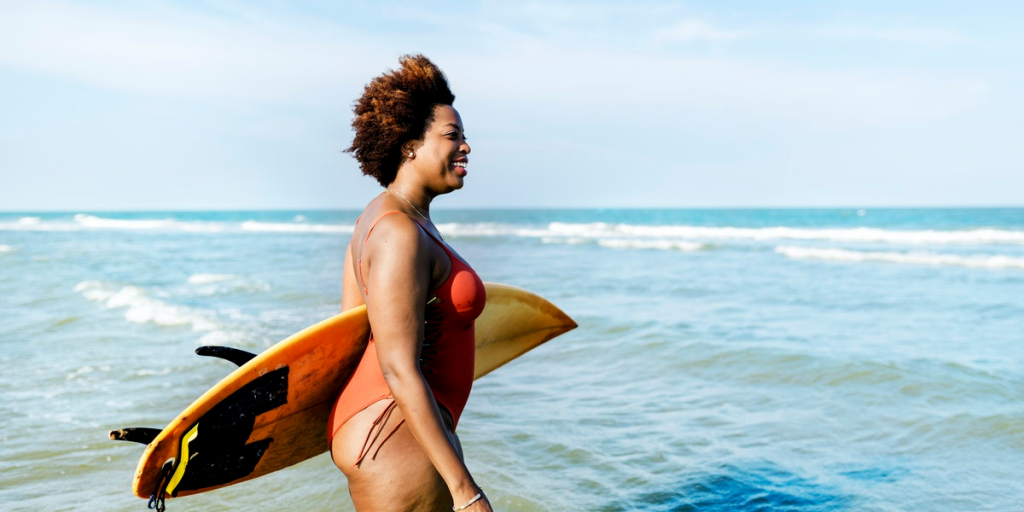

What is Body Neutrality and how it helps in overcoming negative body thoughts
Body Neutrality empowers you to embrace yourself as you are, including the parts you don’t like about yourself.
Its focus is to avoid self-hate while simultaneously relieving you from the pressure of having to love your body.
The goal is to respect and accept your body for what it is – and that’s it.
Body Neutrality recognizes that not everyone is going to love every part of themselves all the time because that’s an unrealistic expectation, to say the least.
The reality is that some days you’re going to look in the mirror like, “Damn it, yeah, thank you, legs for letting me travel. Thank you, arms, for allowing me to type this inspirational post and thank you, belly, for creating life!”
And then, there’ll be those days where you stand in front of the very same mirror, focusing on that cellulite you hate or the wrinkle that suddenly seems so obvious.
Body neutrality versus body positivity
Embracing Body Neutrality over Body Positivity allows you to experience negative feelings about yourself, but without the pressure that comes with having to be positive all the time.
In other words, it’s a middle ground between positivity and negativity (shaming) – that’s neutrality.
Body Neutrality is the safe bridge between body shaming and body positivity. It’s about being grateful for your body and everything it does for you because it does a lot. You are alive right now.
So, Body Neutrality is centric on the process of accepting your body.
Body Neutrality & Intuitive Eating
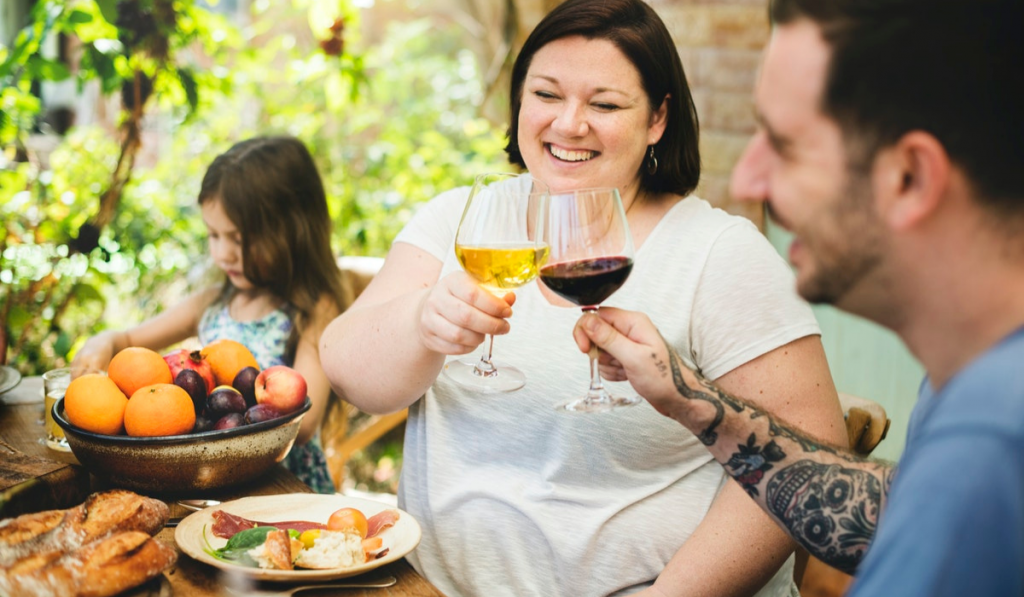

For many of us, we’ve had years of suffering through body shaming. Along the way, we’ve picked up coping behaviors to neutralize the pain associated with body image struggles.
Being the victim of body shaming, most of it from our own mind, is difficult, to say the least. So, no wonder that many of us have become, along the way, emotional eaters or binge eaters.
Combine the suffering that comes along with body shaming with the notion that food is the gateway to “loving our life and body,” food has become this enemy that we need to control in order to end the suffering.
Healing our relationship to food is necessary in order to make peace with our body. Intuitive eating is the way in which you can achieve both: body neutrality and peace with food.
Moreover, intuitive eating teaches you to respect your body.
Intuitive eating teaches you to respect your innate body messages. This includes hunger and fullness to have a healthy and respectful relationship with your body. This is what we teach the women inside our Conquer & Thrive community so they can live and enjoy their full life right now… unconditionally!
The bottom line
You can’t hate yourself to health or peace. Love always wins. Always.
Acceptance doesn’t mean giving up. It means seeing what is and adopting a non-judgmental perspective. Accepting allows you to improve and grow instead of obsessing about why it’s wrong and stress over the results.
Need help to get started with Body Neutrality and Intuitive Eating?
I have created a free audio guide for you to get started with body neutrality and intuitive eating and finally overcome negative body thoughts so you too can be on your way to freedom!
How to overcome negative body thoughts?
A 2013 study published by the Journal of Obesity study found no link between body weight and the way women feel about themselves. Yet, the findings show a link between how women feel about themselves and the healthy activities they engage in. Meaning, the better they felt about their bodies, the more likely they were to take care of themselves by eating well and being active, allowing them to create a positive cycle.
That meant overcoming negative body thoughts and making peace with my body size could actually improve my health behaviors, eat better and ultimately be healthier now… unconditional of my body size.
What is Body Neutrality?
Body Neutrality empowers you to embrace yourself as you are, including the parts you don’t like about yourself. Its focus is to avoid self-hate while simultaneously relieving you from the pressure of having to love your body. The goal is to respect and accept your body for what it is – and that’s it.
Body neutrality versus body positivity
Embracing Body Neutrality over Body Positivity allows you to experience negative feelings about yourself, but without the pressure that comes with having to be positive all the time. Body Neutrality is the safe bridge between body shaming and body positivity. It’s about being grateful for your body and everything it does for you because it does a lot. You are alive right now.
Body Neutrality & Intuitive Eating
Healing our relationship to food is necessary in order to make peace with our body. Intuitive eating is the way in which you can achieve both: body neutrality and peace with food. Intuitive eating teaches you to respect your innate body messages such as hunger and fullness to have a healthy and respectful relationship with your body.
Non-Diet Approach for Health Coaching
When I first started in my nutrition practice the term “non-diet approach” didn’t even cross my mind. “Anti-diet approach” didn’t even exist. Unbeknown to me, I was practicing the “diet approach to nutrition” simply because that’s what was taught in health & nutrition school.
Fast forward close to 10 years now, a lot have changed. The non-diet approach is growing rapidly, so has the anti-diet approach and intuitive eating is booming.
So, let’s discover what is the non-diet approach.
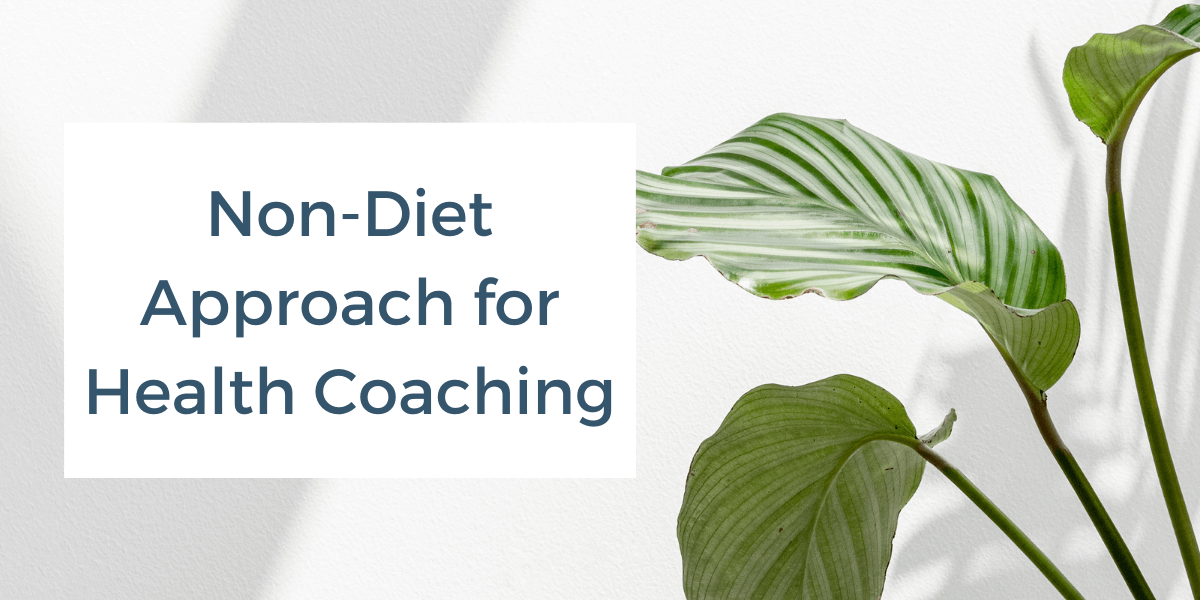

Core values of the non-diet approach
The pillars of the non-diet approach
Non-diet approach training for professionals
What is the non-diet approach?
The non-diet approach to health coaching & nutrition is the exact opposite of dieting. It recognizes that food, eating and body weight aren’t the problem to be fixed. It’s a weight-neutral approach to health instead of focusing on a weight-oriented outcome. This approach focused on all the other factors that can impact one’s health beyond body weight. In other words, the ultimate goal is to support the patients to become their own experts at their bodies.
The Going Beyond The Food Method™️ is our proprietary methodology that helps women to recover from diet culture and learn the non-diet way of life. Firstly, our 4 pillars are Body Wisdom, Body Trust, Body Respect, and Body Neutrality. Secondly, our framework is composed of 5 steps process: Intuitive eating, Body Neutrality, Self-Coaching, Emotional Intelligence, and Mindfulness.
Core values of the non-diet approach
The non-diet approach to health coaching and nutrition holds key core values: Fundamentally, it recognizes that diets do not work. It’s holistic in nature. It is focused on the Why not the What, it’s focused on finding solution that are based on love and compassion. Moreover, it believes that all humans and bodies are worthy.
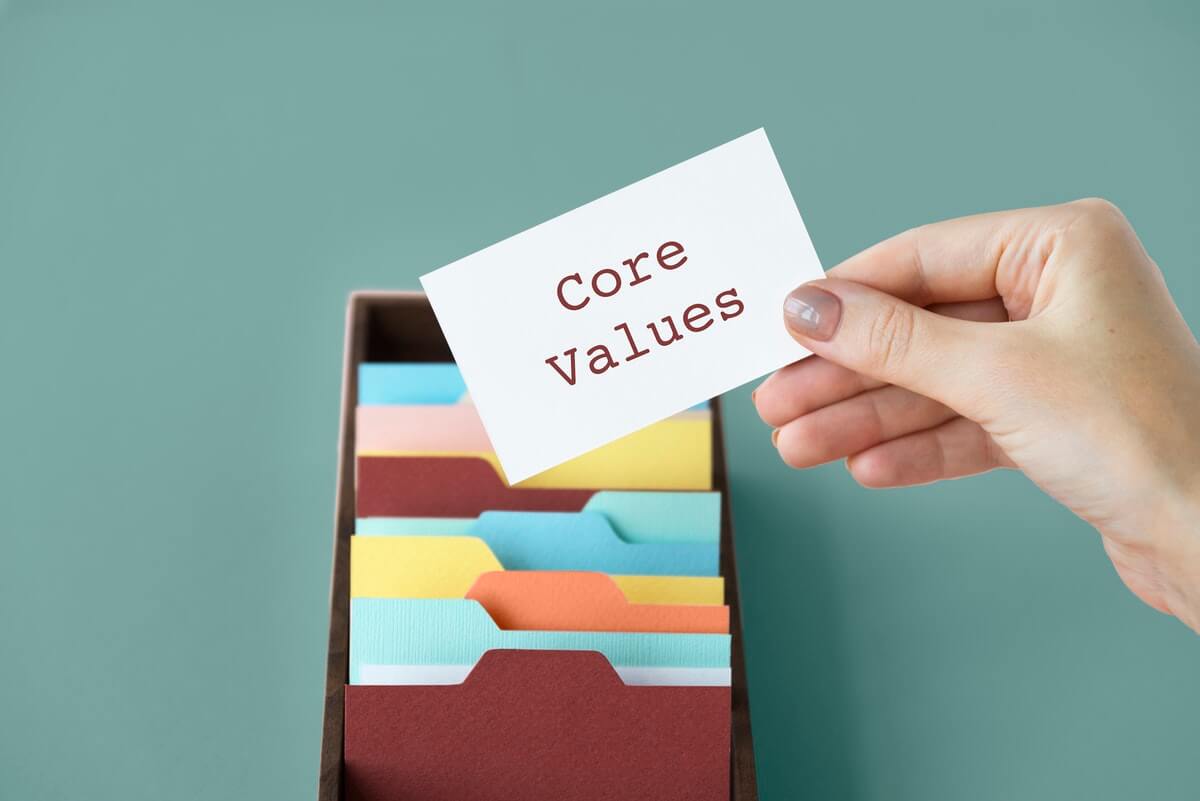

Diets don’t work
A 2016 study by researchers at UCLA studied 40,420 adult participants in the most recent U.S. National Health and Nutrition Examination Survey. Researchers looked at the participants’ health as measured by six accepted metrics (not including BMI). These metrics are blood pressure, cholesterol, triglyceride, glucose, insulin resistance, and C-reactive protein.
The study found that 47% of people classified as overweight by BMI and 29% of those qualified as obese were healthy based on at least five of those other metrics.
Meanwhile, 31% of normal-weight people were unhealthy by two or more of the same measures.
A number of research studies show that weight loss is not necessary to improve physical health. Studies have also found that fitness is more predictive for mortality than weight. This study defined ‘fit’ as 3-4 hrs per week of walking.
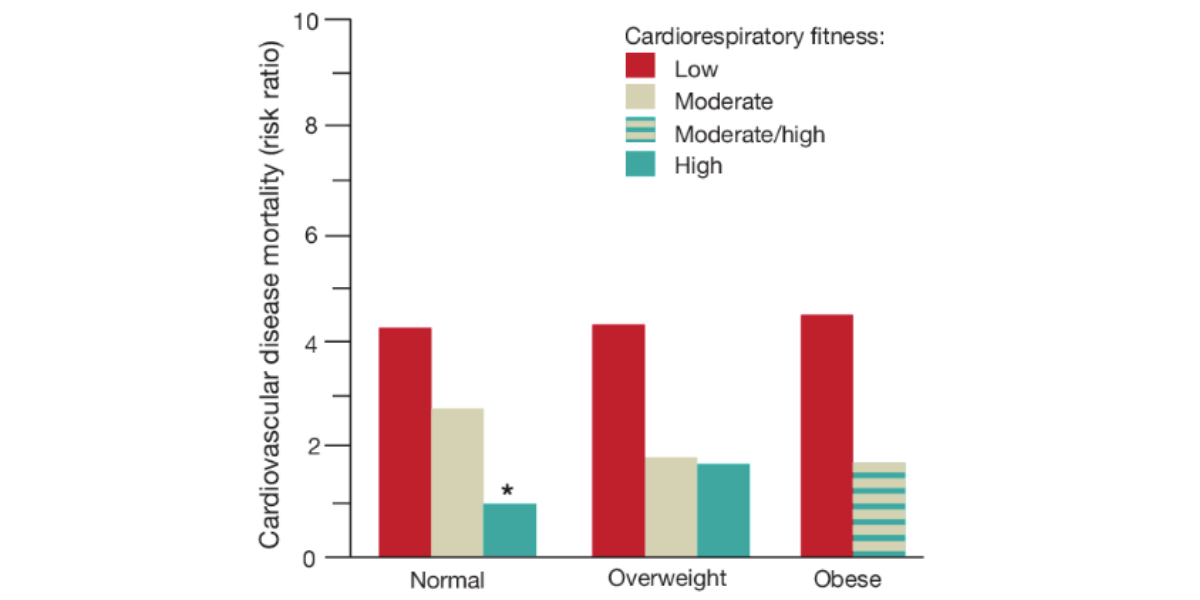

Note: “Fit” is not synonymous with “thin” or “lean.” That’s Diet Culture. Being fit means being in good health, especially because of regular physical movement.
Furthermore, trying to change your health status simply by losing weight has not only proven to be an ineffective approach but also carries potential negative side effects to your health. The focus on intentional weight loss via dieting can be harmful. Multiple studies demonstrate negative side effects of dieting behaviors. The three most documented negative effects are weight cycling, disordered eating, and weight stigma.
The non-diet approach for health coaching is holistic
The World Health Organization defines health as “a complete state of physical, emotional, and social well-being, not merely the absence of disease or infirmity.” The non-diet approach is a weight-neutral approach to health is based on the idea that your health status or risk level can’t be determined solely by your weight.
Instead it recognized that humans are more than a physical body: mental, emotional, spiritual and physical human bodies.
Its focus is on the WHY instead of the WHAT
The non-diet approach looks at the root cause of the behaviors. For example, when considering nutrition it considers why the individual is eating instead what the individual is eating. What we eat, how we eat and when we eat come second to why we eat.
Compassion versus fear-based threat
The non-diet approach will help the client switch his approach to health behavior to one of compassion for self. It will help form a relationship of respect towards one’s body helping the client to make choice based in love for body and self instead of fear (fear of disease, fear of weight gain, fear of other people opinion, etc…)
All humans are worthy; All bodies are worthy
The non-diet approach is grounded in the fact that all humans are worthy therefore all bodies are worthy. The non-diet recognizes the danger to one’s health when face with any stigma, discrimination or prejudice.
Therefore, the non-diet approach must be anti-discriminatory: anti-fatphobia, anti-racist, anti-sexist, anti-transphobia, anti-classist, non-binary, etc.
The pillars of the non-diet approach for health coaching
When practicing the non-diet approach to health and nutrition with clients, practitioners must follow a sequential order in their approach. Although adaptable in nature, some fundamental pillars must be in place
1. Investigation of belief and history
The first step is for the practitioner to have a clear understanding of the current state of their clients/ patients relationship to food and body. A number of assessments are available: Intuitive eating assessment, Body Acceptance Assessment and Dieting Impact Inventory.
Next, the practitioner will help the client understand how they go to be where they are right now using a dieting timeline. It’s very important for the patient to understand that it’s not their fault but instead diet culture.
2. Mindset & Unlearning Diet Culture
The next phase of the non-diet approach is the most important: unlearning. Unlearning the diet mindset, dogmatic beliefs about food and exercise, the thin ideal, etc..
When we trained professional inThe Going Beyond The Food Method™ our practitioners are trained in a Cognitive Behavior Therapy approach called Self-Coaching. This will be the tool they will teach their client to help them unlearn Diet Culture.
3. Attunement & Reconnecting
As the client progress in unlearning diet culture the next steps will be to help patient to reconnect with their body via body sensation. Using various mindfulness approach our graduates of our non-diet certification have a number of tools available to them to teach their client attuned with their body.
The first set of sensations we focus on with the clients are eating cues: hunger, fullness and satisfaction. Gradually, clients will be able to trust their own ability to read and interpret their innate body sensations.
4. Emotional Intelligence & Processing
As the client gets more attuned to her own innate body wisdom, the focus will shift to building skills set to process emotions & feelings. One of the most effective tools for this step is deconstruction of the eating behavior using two questions: What am I feeling? and What do I need?
The outcome of these pillars is to build emotional intelligence and shift the individual engagement with their emotions from Reacting to Responding.
5. Empowerment & Relearning
The non-diet approach is truly beyond the food and this next pillar is the reason behind this powerful transformative process.
To help build empowerment, the process of habituation will be use to help client regain power over fear foods. Gradually reclaiming their power at first with food and naturally expanding their empowerment to other part of their life using their inner wisdom.
6. Respect & Liberation
In this last step practitioner will support client in the process of rebuilding a relationship of respect with their own body. Engaging in body image healing using body neutrality and Health At Every Size approach to help build an inventory of health promoting behaviors.
At this point in the process client is also ready to re-engage with food using a gentle nutrition philosophy and with exercise using a joyful movement approach.
Non-diet approach training for professional
We have created a number of free non-diet approach training resources to help you begin learning more about this revolutionary health approach. Join my non-diet professional community by requesting our non-diet professional starter pack.
You can also listen to our non-diet podcast.
The non-diet approach mentorship program
The Going Beyond The Food non-diet approach mentorship program is a space where you can receive support guidance to become the best non-diet professional. It’s a program geared to refine your non-diet professional skills set and teach you the skills you need to build a successful business that can impact thousands of women. It will help you develop as a powerful leader and help other women come back to their power. You will learn how to harness your ability to support and help other women. As a result, you can impact thousands of other women and dismantle diet culture.


Non-Diet Approach FAQs
The non-diet approach to health & nutrition is the exact opposite of dieting. It recognizes that food, eating and body weight aren’t the problem to be fixed.
It’s a weight-neutral approach to health instead of focusing on a weight-oriented outcome. This approach focused on all the other factors that can impact one’s health beyond body weight. In other words, the ultimate goal is to support the patients to become their own experts at their bodies.
The non-diet approach to health and nutrition holds key core values: Fundamentally, it recognizes that diets do not work. It’s holistic in nature. It is focused on the Why not the What, it’s focused on finding solution that are based on love and compassion. Moreover, it believes that all humans and bodies are worthy.
1. Investigation of belief and history
2. Mindset & Unlearning Diet Culture
3. Attunement & Reconnecting
4. Emotional Intelligence & Processing
5. Empowerment & Relearning
6. Respect & Liberation
We have created a number of free non-diet approach training resources to help you begin learning more about this revolutionary health approach. Join my non-diet professional community by requesting our non-diet professional starter pack.
You can also listen to our non-diet podcast.
The Going Beyond The Food non-diet approach mentorship program is a space where you can receive support guidance to become the best non-diet professional. It’s a program geared to refine your non-diet professional skills set and teach you the skills you need to build a successful business that can impact thousands of women.
Feminism and Diet Culture
Statistics may vary to the exact % but one thing is clear: most women are dissatisfied with their body.
Research released by Dove, for their ‘Self-Esteem Project’, found that 96% of women in the UK reported feeling anxious about the way they look, compared with 86% in China, 72% in Brazil, and 61% in the US. Only 4% of the women in all the countries surveyed would consider themselves ‘beautiful’, and by the time girls reach 17, 78% will be ‘unhappy with their bodies’.
Women don’t diet because they enjoy dieting. Women who diet do it because they think they have to. These women think they are their body, thus, their bodies’ ability to meet the diet culture expectations define their worth.
Helping women leave and recover from diet culture is a feminist issue.
Why a non-diet approach for women?
The intersection between diet culture & women history
Women socialization to diet culture
Women internalization of diet culture
Non-diet Approach for women Professional Training
Non-diet Approach for women mentorship
If you would like to listen to the article in audio format the Going Beyond The Food Show
Links mentioned in the episode…
Non-Diet Coaching Certification
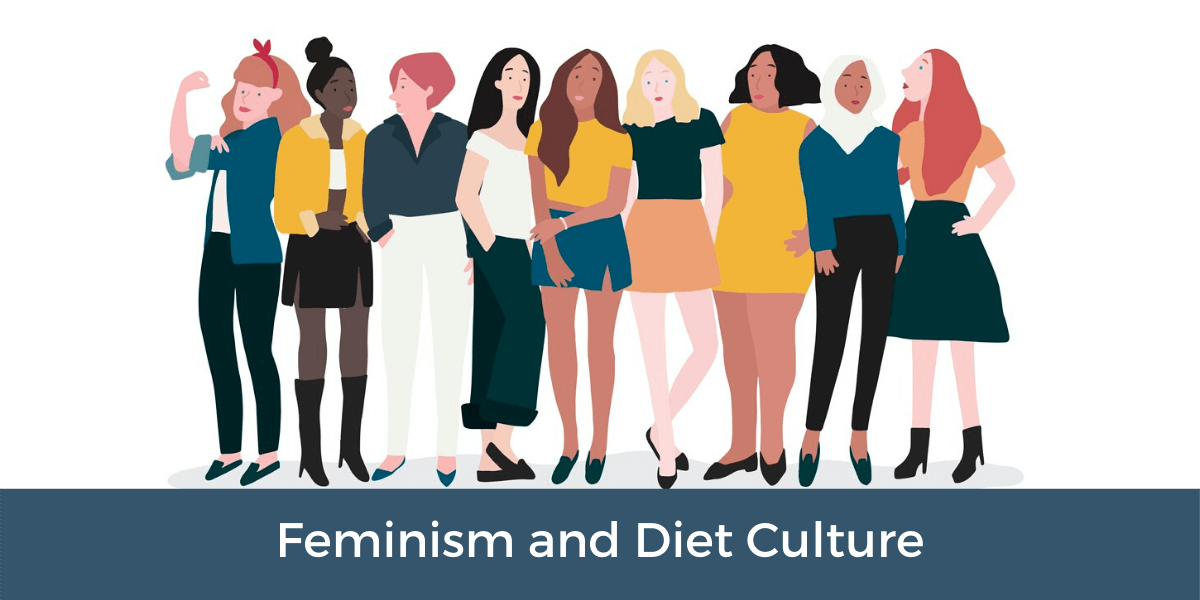

feminism and diet culture
Why a non-diet approach for women?
When women first seek to stop dieting, they think they need to “fix” their “food issue”. After years of dieting they’ve been told in many different ways that the issue was them, not the food. That if they could eat “normally” they would finally achieve their “normal body”. Sounds familiar?
It’s normal that your future client thinks like this… that’s all they’ve ever known. They’ve spent their life wondering why they struggle with food and if they could only “fix what’s wrong with them and food,” life would unlock their dreams.
The truth is: they have no issues with food. In fact, as we discovered in S1 EP 1 Intuitive eating Mentorship – First do no harm for us, as practitioners, to validate their thoughts about food and them being the issue can cause more harm. The way they engage with food now is the result of the restriction of dieting. Dieting is the issue not food. But why do your clients diet? As we’ve learned in the last episode: fatphobia: the fear of fatness.
A weight-neutral approach to health
The non-diet approach helps clients stop dieting, make peace with food and body image. It’s a weight-neutral approach to health that helps people reconnect to their innate power and become their own expert at their bodies.
Although the non-diet approach is gender-neutral, I believe that a segment of the healing approach should address the specific forces pulling at each gender/ sex: Cis-women, Cis-men, Trans, Genderqueer, non-binary, etc… I believe that each gender should have non-diet professionals that understand the specificities and struggle for each group for the best care.
The Going Beyond The Food Method™️ is for people that identify as women. I created this methodology based on my experience as a cis-woman over the last 45 years. As a person in a women’s body who has been exposed to the force of patriarchy and its attempt to control me as a woman and my body.
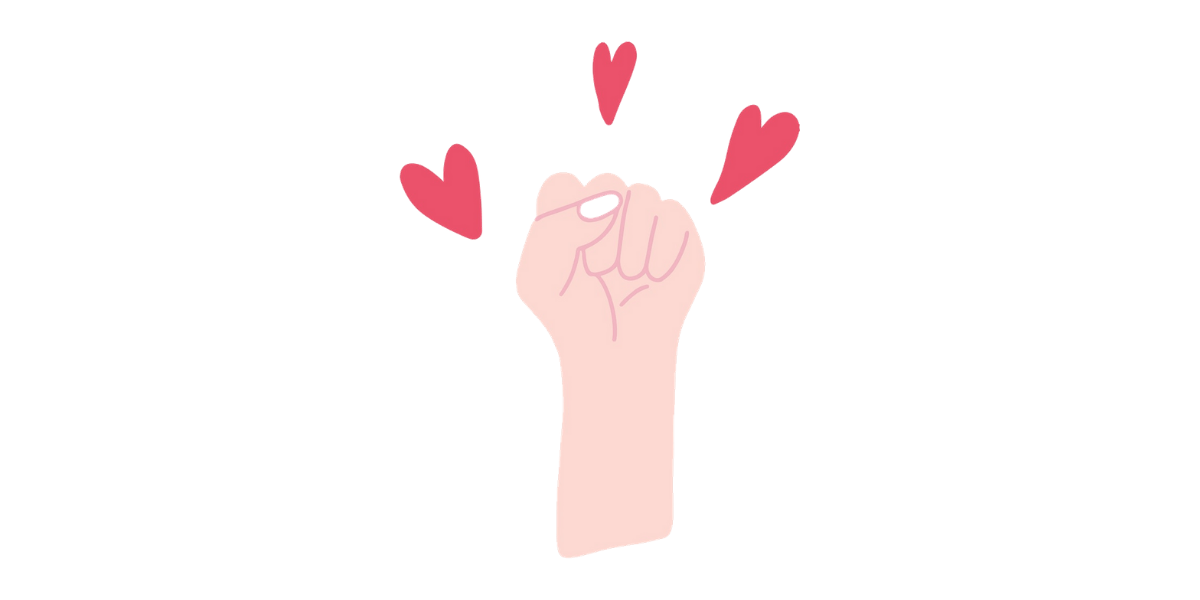

feminism and diet culture
Feminism & diet culture
First, let’s take a step back and understand patriarchy. Patriarchy is a social system in which men hold primary power and predominate in roles of political leadership, moral authority, social privilege, and control of properties. Patriarchy views men as dominant and women as submissive.
One of the many ways in which patriarchy attempts to dominate women is by exerted forces that dictate how women handle their bodies: reproduction, sexuality, beauty, and yes, body size and shape.
Most recently over the last 100 years, Diet Culture has become the cultural form of oppression on women’s bodies. Diet culture judges women’s worth based on their physical body size and looks. It assigns moral values to the ability of women to meet up with their standards.
The diet culture keeps women focusing on their bodies. Dieting keeps women distracted on food, exercise, and trying harder at restricting instead of using their innate resources to achieving much more important things in their life. Given that the tools proposed to women to achieve their “ideal body according to patriarchy” doesn’t work, it keeps women thinking they are the problem and not the diet. Women keep doubting themselves, their abilities, their capacities, and their obsession with trying to make up for what they are told are a personal failure to achieve the “good enough body”.
It is my belief as a health professional that women must understand why they “chase” a smaller body to their healing and recovery. For women, to truly liberate themselves from diet culture and its chain, they must know why society created it in the first place.
The intersection between diet culture & women history
If you look through history, their beauty or body didn’t always control women. Instead, their ability to procreate and religion controlled women. It’s not until recently that women’s bodies became the center of attention.
The mid 19th century
The feminist movement was beginning to form as women gain access to education. Women involved themselves in the abolition movement and women continued asking for their own political power. As women become more vocal and demanding more power, patriarchy responded with pressure on women’s bodies to be smaller.
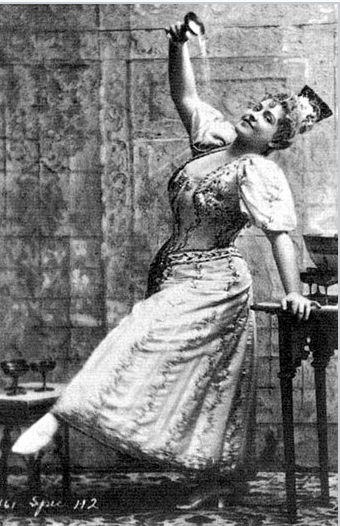

feminism and diet culture
The Gibson Girl
The Gibson Girl was born in 1880. This was the personification of the feminine ideal of physical attractiveness as portrayed by male artist Charles Dana Gibson. This body female ideal was heavily promoted and published via the new magazine and printing industry. So, ensure product advertisement ways to look like Gibson’s girl: beauty products, pills, cream, arsenic pills, etc…Diet culture was born. This period also introduced ready-made clothes and women needed to “fit” clothes when up to then clothes were made to fit women.
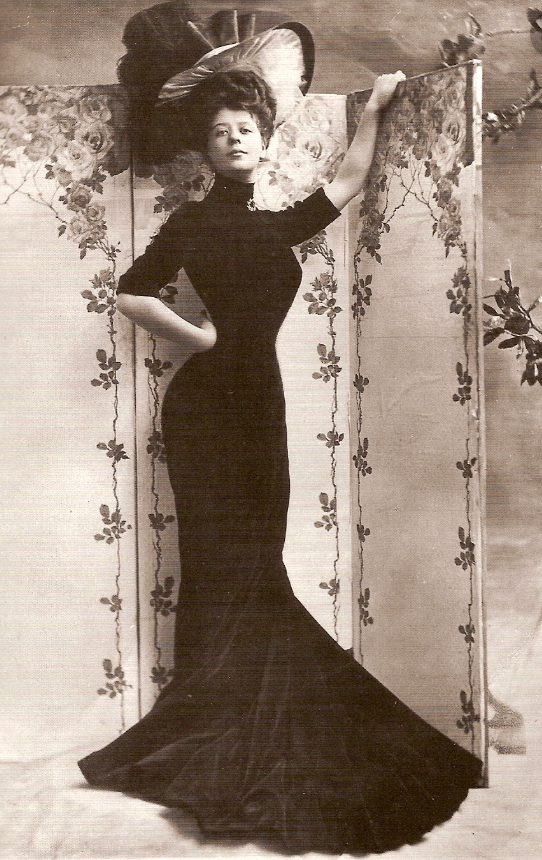

feminism and diet culture
The Flapper girl
As the suffragette movement began to gain the right to vote in many countries, the Flapper girl was born. Women became “liberated” from the Gibson girl corset only to find themselves binding their natural feminine curve into the linear look of the 1920’s. Thinness was a sign of “perceived freedom” for women. This solidified the diet culture.
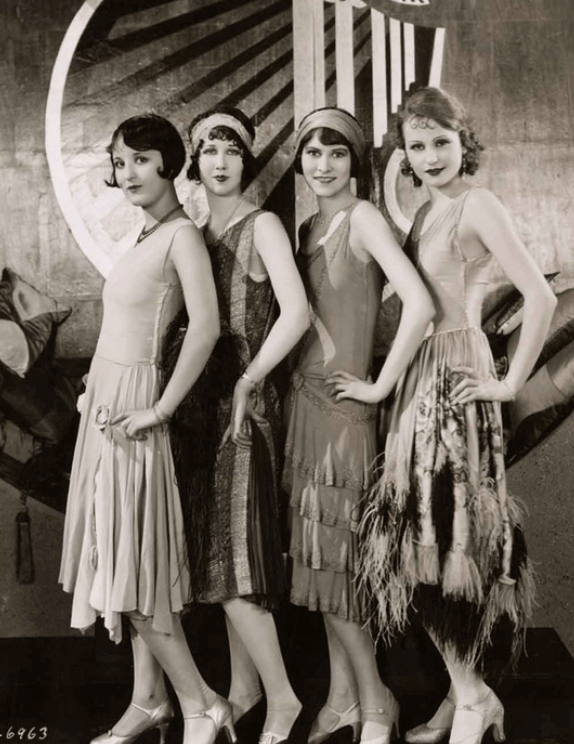

feminism and diet culture
Twiggy
With every gain in socio-economic power, women gained a smaller and smaller body ideal. Whereas the first-wave feminism in the early 90’s focused mainly on suffrage and political power, the second-wave feminism that began in the late 1960’s was focused on equality issues. That’s when Twiggy became the first supermodel; willowy, thin, adolescent physique.


feminism and diet culture
The 80’s
In the 80’s as women affirmed their new equality, came the low-calories, low-fat, and aerobic era with Jane Fonda as the leader. Calories counting began and this is when women became obsessed with dieting.
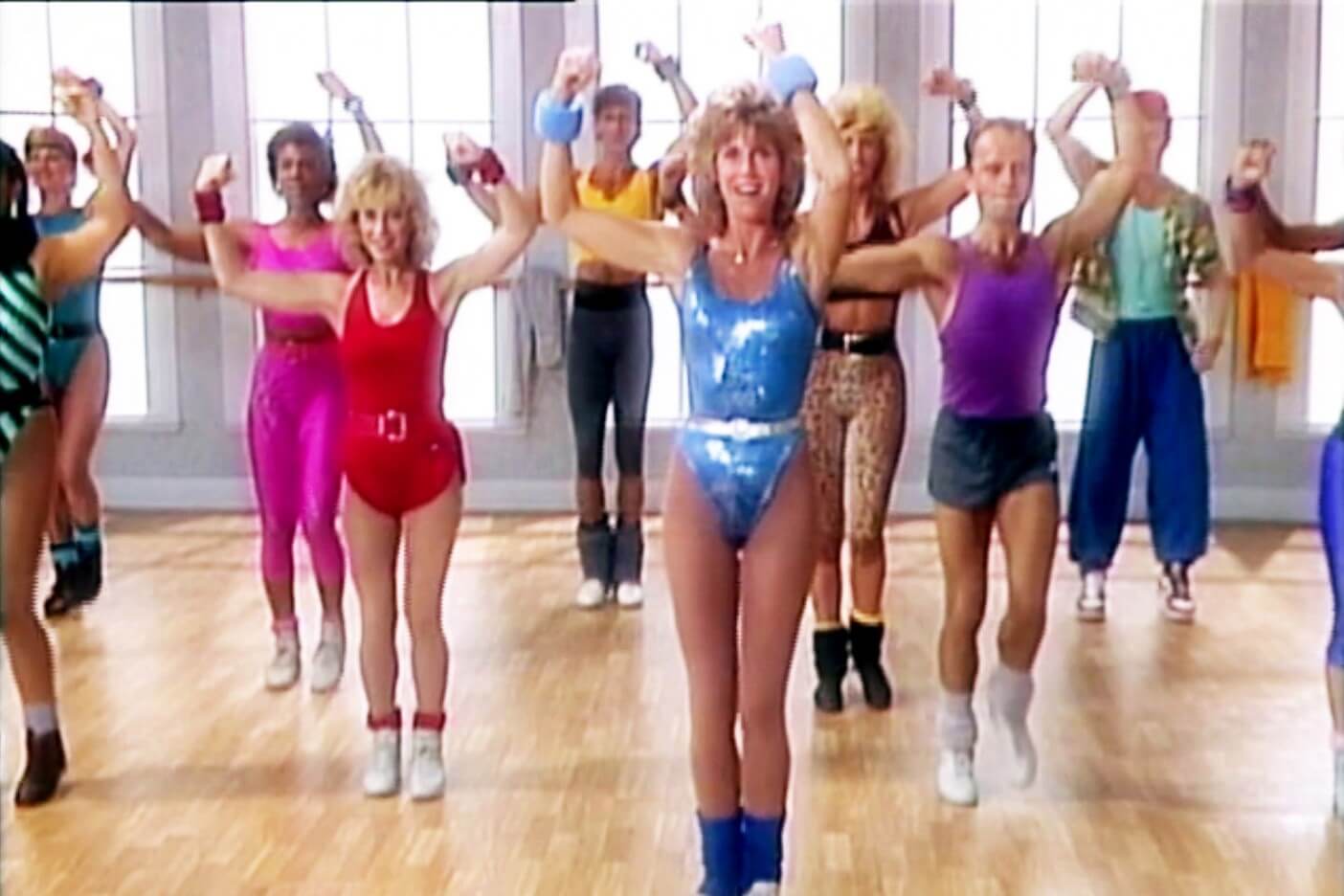

feminism and diet culture
And it continues up to today. The 90’s saw Kate Moss as the body ideal for all women. With an even smaller body than Twiggy, women’s ideal was body waifish, extremely thin described as “Heroin Chic”. The ’00s saw the Victoria Secret angels, and today we have the influencer healthy body ideal throne by the Kardashian.
“A culture fixated on female thinness is not an obsession about female beauty, but an obsession about female obedience. Dieting is the most potent political sedative in women’s history; a quietly mad population is a tractable one”
– Naomi Wolfe
Women socialization to diet culture
Socialization is the process of internalizing the norms and ideologies of society. It may lead to a desirable outcome and in certain aspects of life ensure our survival.
Socialization to diet culture and female body ideal happens at a very young for women. When were you gifted your first Barbie?
Among many societal behaviors, Their body, their beauty, and being a “good girl” defined women. Society conditioned women to please using their bodies. While society defined boys to be strong, intelligent, and non-emotional.
Most women who diet chronically today encountered their first diet in their early teens. They first observed their female caregiver being “dissatisfied” with their body and dieting. As these women entered their puberty and began awakening to being attractive, they engage with their first diet. Worse, some women experienced diet before the age of 10 as their parents wanted to prevent the “shame” of being in a non-conventional body.
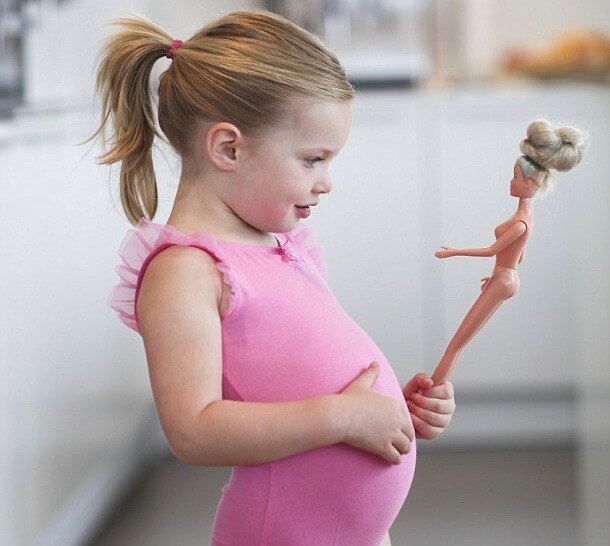

feminism and diet culture
Women internalization of diet culture
The process of internalization pertains to the person’s acceptance of a set of norms and values established by others and learned through socialization.
Women internalized diet culture in their teens leading to adulthood. This is when of having to please, as a woman, using among other things our body moves from outside of our own mind to being part of our own mind. At that point, diet culture has shaped who we are as a woman.
As we discussed in a previous article Non-diet Approach: Addressing the root cause, fatphobia is at the root as to why women diet. The process of diet culture internalization leads women to be fatphobic. They fear of being fat. They fear others judging their body as a fat body. It’s said that women fear weight gain more than illness.
Women’s fear of being in a non-confirming body is validated daily. Hundreds, if not thousands of times, marketing images and words, social media, conversation with other women, medical treatment, the beauty industry, etc… remind women that they should fear to be in a non-thin ideal body.
To cope with this constant pressure, women adapt. Diet Brain is a term I coined that best expresses how women adapt to diet culture socialization and internalization. To adapt, women become people-pleasers, we expect perfection for ourselves in the hope to offset our inability to be in a confirming body ideal. While the solution to achieve this thin ideal, “dieting” has a 91-95% failure rate, we blame ourselves for it not working so we adopt an “All or nothing” mindset when it comes to food and health.
This adaptation process is unique to people identifying as women and is the reason why Non-Diet Coaching Certification is essential for health professionals helping women recover from diet culture.
“Your dislike of yourself is a side effect of the POISON you are being fed. None of this messaging is real. Your inner bully has learned the lies society fed it, and is giving you fake news about your looks, your value, your worth, your right to be happy. I’m so sorry you have to deal with this crap. Diet Culture is just making you hate yourself for a profit”
– Naomie Wolfe
Dieting is a feminist issue
Opting out of diet culture as a woman is more than simply stopping dieting. It’s a feminist act. When we stop buying into the diet culture definition of what being a woman is, we reclaim our power back. We say no to being our bodies. We say yes to trusting and respecting ourselves first.
Helping women recover from the diet culture must include the education to how we got to be where we are today as women. That we were capable to feed ourselves, to care for ourselves, and to be more than our bodies. The socialization and internalization of diet culture are what created the beliefs that lead us to dieting and trying to fit in using our own body against ourselves.
One of the paths to reclaim our power from the diet culture can be with intuitive eating. Using our source of shame, that is food, can actually rebuild a relationship of trust and respect towards our own selves. As we reconnect to our innate body wisdom, we get to witness the power that is within us.
As we build confidence in our innate capacity to feed ourselves, we can continue to use diet culture source of shame to regain our power as women. Healing our body image and crafting a new way to be in our human body shell is not only necessary but very empowering.
“If your self-esteem is dependent on external result, you have given all your happiness and agency away. It’s an exhausting, and powerless way to live.”
Women empowerment
Individual autonomy is this idea that refers to the capacity to be one’s own person, to live one’s life according to reasons and motives as one’s own and not the product of manipulative or distorting external forces.
Leaving the jail of diet culture is a revolutionary act for women to not only be autonomous but to claim their power back from a patriarchal society that suppressed our empowerment.
In today’s society, the greatest punishment is to take away people’s autonomy and freedom by sending them to jail. Diet culture has taken women’s autonomy and freedom. Diet culture robs women of the capacity to be in their now body, to feed themselves naturally, to wear clothes they desire, to decide their own beauty standards, etc…
Helping women recover from diet culture is truly about empowering women to live their full life today… unconditionally. Choosing to accept your body is hard but doing hard “things” is what builds confidence in women… not body size. Saying ‘no’ to outside control and ‘yes’ to inner power is what builds self-esteem in women, not beauty.
Non-diet Approach for women training
The non-diet approach is the exact opposite of dieting. It’s a weight-neutral approach to health and nutrition that empowers women to become the expert of their own body. That shifts women from being their body to supporting their body so they can live their full life… right now!
The Going Beyond The Food Method™️ is our proprietary methodology that helps women to recover from diet culture and learn the non-diet way of life. Firstly, our 4 pillars are Body Wisdom, Body Trust, Body Respect, and Body Neutrality. Secondly, our framework is composed of 5 steps process: Intuitive Eating, Body Neutrality, Self-Coaching, Emotional Intelligence, and Mindfulness.
You can learn and transform your life with the Going Beyond The Food Method with our signature program.
Non-Diet Coaching Certification was created for providers and coaches wanting to deliver the Non-Diet Approach in their practice following the Going Beyond The Food Method.
Want to know if the Non-Diet Approach and The Going Beyond The Food Method can be of support to you? Get my starter pack and complete the three assessment: eating, body image and mindset.
You can also listen to our non-diet podcast.
Non-Diet Approach Certification program
The Going Beyond The Food non-diet coaching certification program is a space where you can receive support guidance to become the best non-diet professional. It’s a program that will refine your non-diet professional skills set to empower women and teach you the skills you need to build a successful business that can impact thousands of women.
It helps you develop as a powerful leader and help other women come back to their power. You learn how to harness your ability to support and help other women. As a result, you can impact thousands of other women and dismantle diet culture.
What is Diet Culture and 4 Steps to Navigate It
If you’ve been following me on social media or reading my blog, you certainly have come across the term “diet culture.” I’ve mentioned it many times before. But what is diet culture? How does it impact your life? And what should you do about it?
This article tackles this topic and teaches you how to opt-out of it. Also, I offer some resources that will help you start a new life outside of this oppressive belief system. Here’s what you’re going to learn from this blog post:
How to navigate the diet culture
Diet culture educational resources
Now, let’s begin exploring the diet culture so you can take your first steps to freedom!
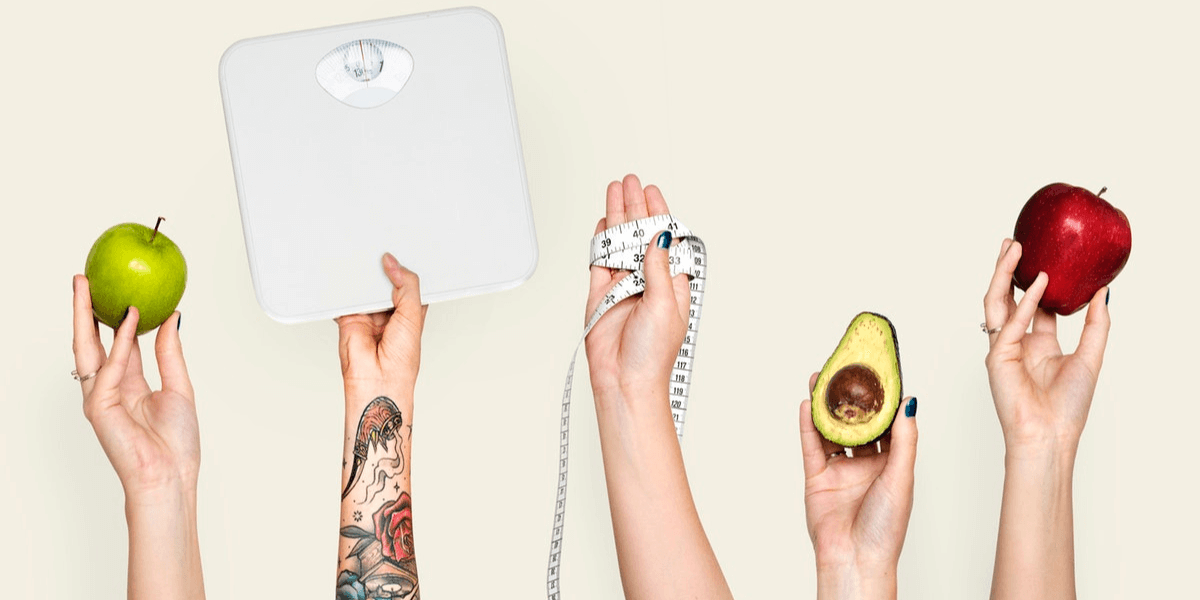

What is diet culture?
From the sound of it, you might think the term “diet culture” refers to a group of people who are on a diet. But it actually has a different meaning.
Christy Harrison, a colleague of mine, has the best diet culture definition. She defines it as a system of belief that worships thinness and equates it to health and moral virtue. It’s now prevalent in our society and oppresses women from all over the world!
How does this impact your life?
This means you may have spent your entire life thinking that you’re broken just because you don’t look like the impossibly thin ideal.
That’s just one angle. You can also look at the diet culture from three other angles:
The second angle is that it promotes weight loss as a means of attaining higher status. It makes you feel compelled, almost obligated, to spend massive amounts of time, energy, and resources, trying to shrink your body so you can fit into this thin ideal. Now, research is very clear that the dieting model has a 95 percent failure rate, so it might as well be an exercise in futility.
The next angle is it demonizes certain ways of eating while elevating others. It forces you to be hyper-vigilant about your eating, shames you for making certain food choices, and distracts you from the pleasure of eating as well as from your purpose and power.
Last but not least, it oppresses people who don’t match the supposed picture of health or the thin ideal. This affects us most particularly as women, although it’s starting to affect men.
My 25-year journey inside diet culture
As you probably know, I used to have a love-hate relationship with food and my body. A 25-year career in dieting left me obsessed, frustrated and confused about food. I was also at a loss on how to take care of my body.
Dieting was stealing my life and at 39. Then I decided that I had enough… I finally chose to take my power back and free myself from dieting and body shaming. The Going Beyond The Food Method™️ was born out of my personal journey.
Now, as a health professional, I’ve helped hundreds of women work their way out of this oppressive culture and develop a healthier relationship with food using intuitive eating and body neutrality.
Is diet culture affecting you, too? I invite you to consider its impact on your life. Take our quick self-assessment tool we created to help women determine if intuitive eating is the right solution for them.
How to navigate the diet culture
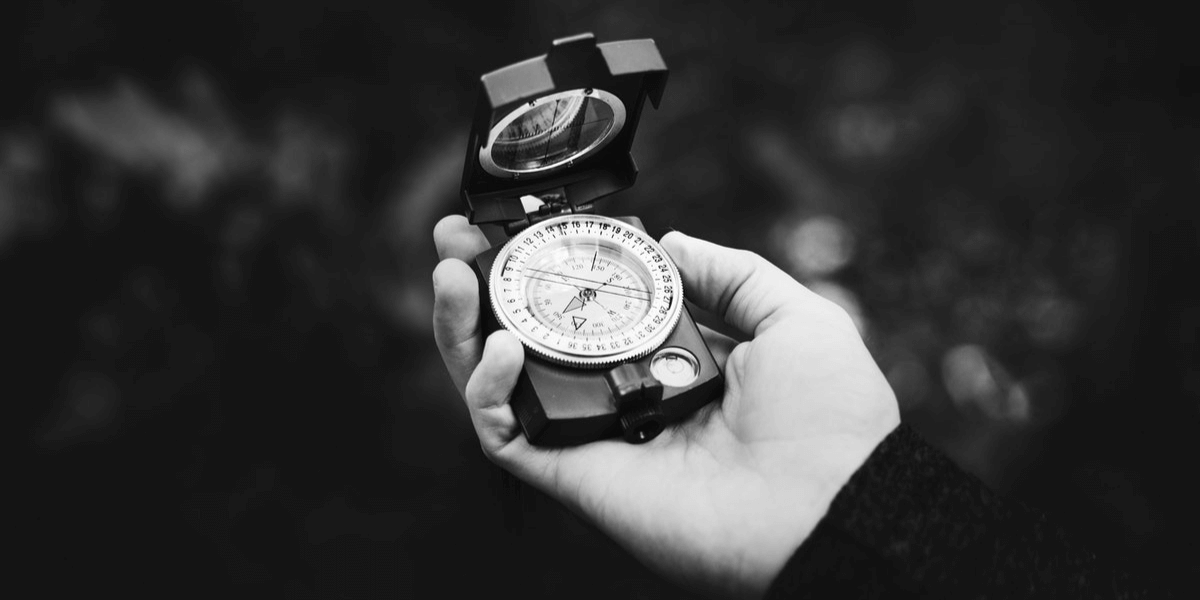

I invite you, and honestly all women, to become diet culture dropouts! Below are the four steps you need to take in your journey towards freedom:
Understand that you have a choice.
Now is the best time to be a woman. Unlike the generations before us, we’re liberated and empowered! You have to understand that diet culture is a tool that the patriarchy uses to keep us from being in our power. It keeps us busy minding our calories and macros. It induces guilt and so we feel inclined to punish ourselves when we fail.
Whether you want to stay in the diet culture and be oppressed or to break away from it and change your life, it’s totally up to you. But you should know that you have the power to make that choice.
Take responsibility.
With great power comes great responsibility. Now, that sounds like a quote from a Spiderman movie, but as an empowered woman, you are responsible for your life. No one else is!
Now, you can be the victim of diet culture and drown yourself in self-pity and helplessness. Or you can say, “Screw this! I’m going to take responsibility, and I’m going to work myself out of it and change my life.”
It’s your call.
Educate yourself.
Read books and blogs. Listen to podcasts. Consume content that supports the choice that you’ve made for yourself. Be on guard against the content that might suck you right back into the diet culture. As I’ve said before, beware of diet culture programs disguised as wellness practices.
I’ve made it my personal mission to empower women by educating them so they don’t allow themselves to be oppressed. And so, I have put together some resources for you.
We have anti-diet culture podcast episodes on the Going Beyond the Food Show, where I interview health professionals. I invite you to listen as they share their expert insights and opinions on our relationship with our bodies and with food.
You can also read our anti-diet culture blog posts on this website. Here, we go deep into the research and the studies around diet culture as well as dieting and its impact on health.
If you’re looking for an anti-diet culture book, I recommend Health At Every Size by Linda Bacon, PhD. Dr. Bacon does research around health and dieting. It’s a book that gave me a lot of “aha moments” and subsequently changed my life.
Find a framework to help you reconstruct your relationship with food and with your body.
You’re going to shift from the way of life that diet culture has taught you to a more empowering way of thinking and doing things. This means there’s a lot for you to unlearn and relearn, so you’re going to need all the support you can get.
The Going Beyond The Food Method™️ is a 5-step strategic process to help women move out of diet mentality and into self-care. Our 5 pillars are: mindset, emotional wellness, mindfulness, body neutrality and intuitive eating.
Diet culture educational resources


As a clinical nutritionist, I’ve found that intuitive eating is the most effective tool for developing a healthy relationship with food and your body. Intuitive eating teaches you to tap into your innate hunger and fullness cues. It requires you to relearn how to engage with food without restriction and without labeling food as “good” or “bad.”
The trauma around body image is more powerful than the one around food. What I have found over the years is that when we work through our relationship with food, it’s a lot easier and faster to heal body image issues.
We offer a variety of programs that will help you should you decide to opt-out of diet culture:
You can access all of our services on our work with us page. We have a number of programs and service levels enabling us to serve most women:
Free Resources and Masterclasses: Get started and get to know us better!
Private coaching with Stephanie and her team Stephanie and her team of Certified Non-Diet Coaches are waiting to support you in a one-to-one setting with an individualized plan.
Undiet Your Life group coaching program is for women to learn how to eat intuitively, become body neutral, and learn self-coaching at their own pace while being supported in a group setting by Stephanie and her team of Certified Non-Diet Coaches.
Non-Diet Coaching Certification for professionals ready to integrate the Going Beyond The Food Method™️ in their practice and for women wanting to become Certified Coach and build a business coaching other women beyond the food.
“… But I need to lose weight”
Me: “… but I need to lose weight”.
Her: “Ok… I can see how you can think that.”
Me: “Everything you are sharing with me makes so much sense and I can feel it inside of me, that it’s what I need [pause & sigh]… but I need to lose weight”.
The tears started to roll off my cheeks. Uncontrollably crying. The tears were coming from the depth of my gut. It was one of those moments when you want to stop crying because you really don’t want to cry in front of strangers but you can’t… it’s not in your control.
Her: “Stephanie, your desires to lose weight are valid. It’s normal that you want to lose weight. The society in which we live, an environment that is full of weight stigma, body size discrimination, and fatphobia encourages these desires every day. It makes perfect sense that you want to lose weight.”
I was deeply confused.
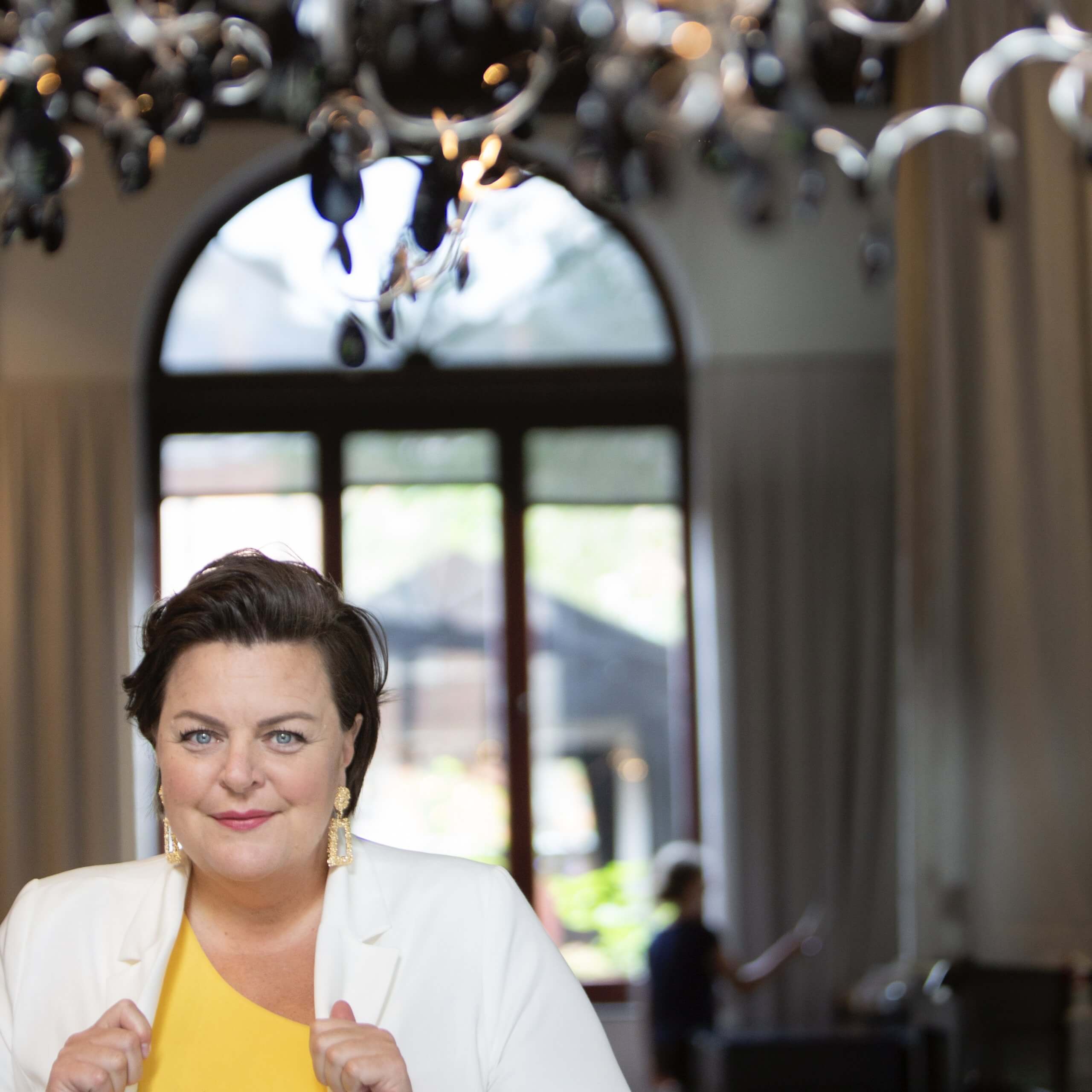

But I need to lose weight…
I was 38 years old and the last 25 years of my personal life had been a series of pressing “pause” and “play”. I only allowed myself to “play” my personal life when I was at a weight that others recognized to be ok. If I was gaining weight or not working hard to lose the “abnormal excess weight”, my personal life was on “pause”.
Her: “So, let’s work through this, Stephanie. Why do you want to lose weight? What do you feel will happen when you lose weight?”
Me: “ Uhhh….. “
No one ever asked me this question. I never asked myself this question either. My brain was stumped… blank.
Her: “It’s normal that you don’t know how to answer this question. You likely never thought of the desire to lose weight as optional therefore never considered why you desired it.”
She was right. At that point, it had been 27 years. Since my teens, I had lived on and off diets always chasing “another body”. My happiness was conditional to the way my body looked. Even when my body looked “ok”, it was such a battle to keep it up that I didn’t have the mental space or time to fully enjoy my now “allowed happy life”.
Me: “I guess you’re right...”
Her: “Until we see each other again, I want you to ask yourself these questions: Where is the desire to lose weight coming from? What do you feel will happen if you lose weight? Will you be treated differently? Will you feel beautiful? Worthy? Healthy? “
As a good perfectionist, I did my homework.
I had so many Ah Ah moments… so many realizations. It took me a while to fully accept what these questions forced me to see: As a strong, independent & feminist woman, I had given away my power.
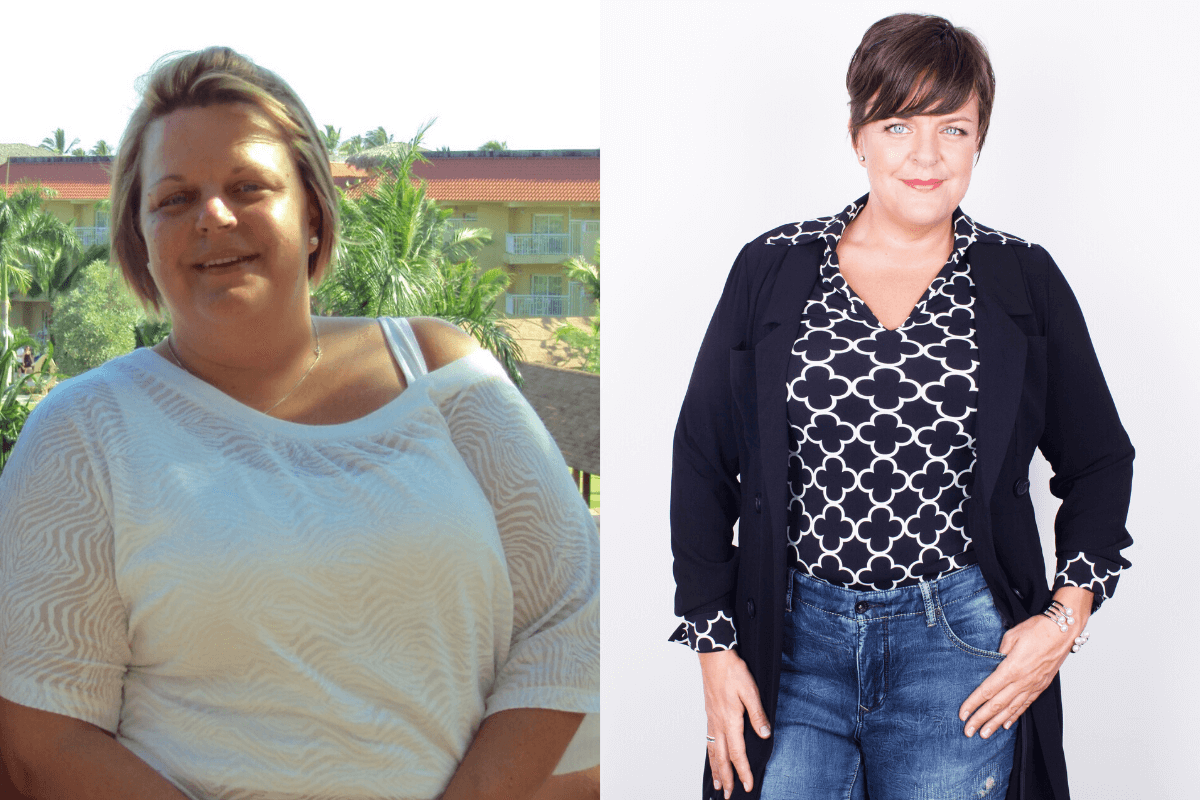

The last time I lost weight: 2008 Stephanie and 2010 Stephanie
My power was in my body size
The way others view my body affected my capacity to be myself. My power was in my body… size. Over time, I had acquired a deep sense that “I wasn’t good enough” so nearly everything I did was serving the purpose of proving to the world that I was enough even though my body wasn’t.
It was hard to prove my worth all the time. I had to strive for perfection, be sure to make choices that would appease and please others around me not to give them another reason to reject me beyond my body.
I was working so hard that my health had collapsed 2 years earlier. It was the time that I was trying to feel better, be healthier but nothing was working, not even… weight loss. I had spent a lot of $$$$ with many health professionals trying to “find and fix” my weight loss resistance without success. My body didn’t want to collaborate anymore… no matter how hard I worked: nothing.
Love versus fear
“Maybe it’s time for another approach…” That’s what my very expensive functional medicine doctor told me after doing all the tests and protocols possible. She said to me, “Maybe there’s nothing wrong with your body… what if you try to love it?”.
To be honest, I was pissed when she said this. I invested a lot on her. “Loving my body? WTF… that’s not a solution.” It took me time to accept these words and gave it a try. But I did.
By now, you might have guessed HER was a professional I was seeing to teach me how to “love my body”. When I sat and reflected on the questions, she had left me with after our first appointment, I realized that I was living in fear.
Fear of not being good enough, being rejected, not being loved, not being promoted at work, not being healthy and live a long life, …. I was powerless in the face of my body.
The journey back to my power
The hard truth was that patriarchal social conditioning had kept me very busy dieting and chasing after the false currency of beauty instead of chasing my dreams. Diet Culture taught me how being consumed by the fear of my body not being “thin’ enough was the way to be a woman… and that indoctrination kept me quiet, and most importantly, conform to patriarchy.
For 27 years, I had fully embraced the lie that my power as a woman was in the looks of my physical body. That lie was the real reason why I was struggling, anxious, and secretly depressed.
Her: “So now you are ready to do the work, sister?”
Me: “ F*ck yesss… let’s do this!”.
The journey to Undiet My Life


The first layover was to unlearn diet culture and patriarchal thoughts & beliefs that had lead me to dieting for 25 years! All that societal conditioning was showing up in my negative self-talk. What I now call Diet Brain had to be reprogrammed.
From there, I was able to conquer my beliefs around food and let my innate power guide my food choices instead of some “weight loss guru” tell me what my body needed. My body and I are smart enough to know what to eat.
The most powerful part of the journey was becoming emotionally intelligent. I had to shift from being the victim of my emotions to using my emotions as a source of information to make the best possible choice for ME. That’s how anxiety and depression left and confidence and compassion came into my life.
That led me to thrive in my relationship with my body. What I sought in my life was no longer the outcome of my body’s look… that gave me freedom. I could care for myself unconditionally and beyond dieting which is the key to bringing back my health.
I now have a relationship of trust and respect with my body. My female body wisdom is my power. I love myself, care for myself, and I thrive in my relationship with myself.
I found my power. The power to live my life now. I gave myself the permission to be enough unconditionally to what my body looks like or weight.
That’s my true power.
Are you ready to do YOUR work? If so I’d love to be your guide and support
Stephanie
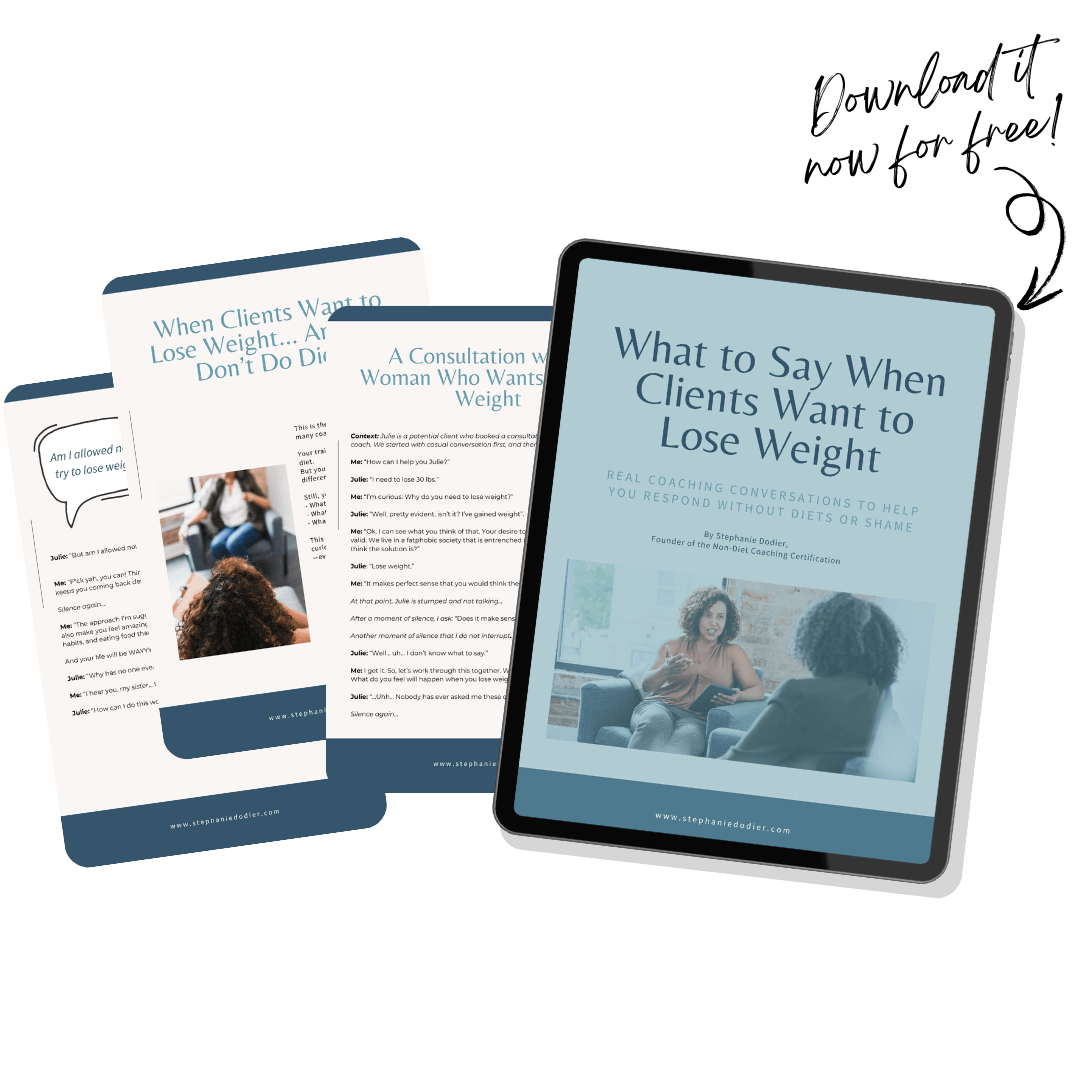

FREE GUIDE
What to say when a client want to lose weight
GET THE EXACT WORDS I USE IN REAL COACHING SESSIONS—WHEN WEIGHT LOSS COMES UP AND I’M HOLDING A WEIGHT-NEUTRAL STANCE


FREE GUIDE
What to say when a client want to lose weight
Get then exact word I use in real coaching session when weight loss comes up and I'm holding a weight-neutral stance
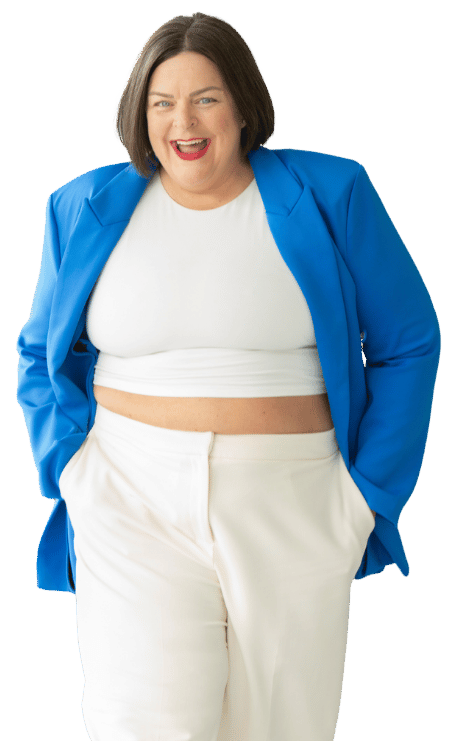

Welcome!
I’m Stephanie Dodier
I am a non-diet nutritionist, educator, and feminist business leader challenging everything we’ve been taught about food, health, and coaching.
I help health professionals confidently coach food and body without co-opting diet culture.
Join me in leading the health coaching revolution!
Ready? Let's do this!

